Here are my favorite poems about loving someone you shouldn’t categorized:
- Poems about loving someone you can’t have
- Poems about loving someone forever
- Short poems about loving someone you shouldn’t
- Poems about loving someone far away
So if you want the best poems about loving someone you shouldn’t, then you’re in the right place.
Let’s get started!
- 75 Harrowing Poems About Forbidden Lovers
- 67 Enthralling Poems About Cheating
- 85 Intimate Poems About Secret Love
- 69 Somber Poems About Loving Someone You Can’t Have
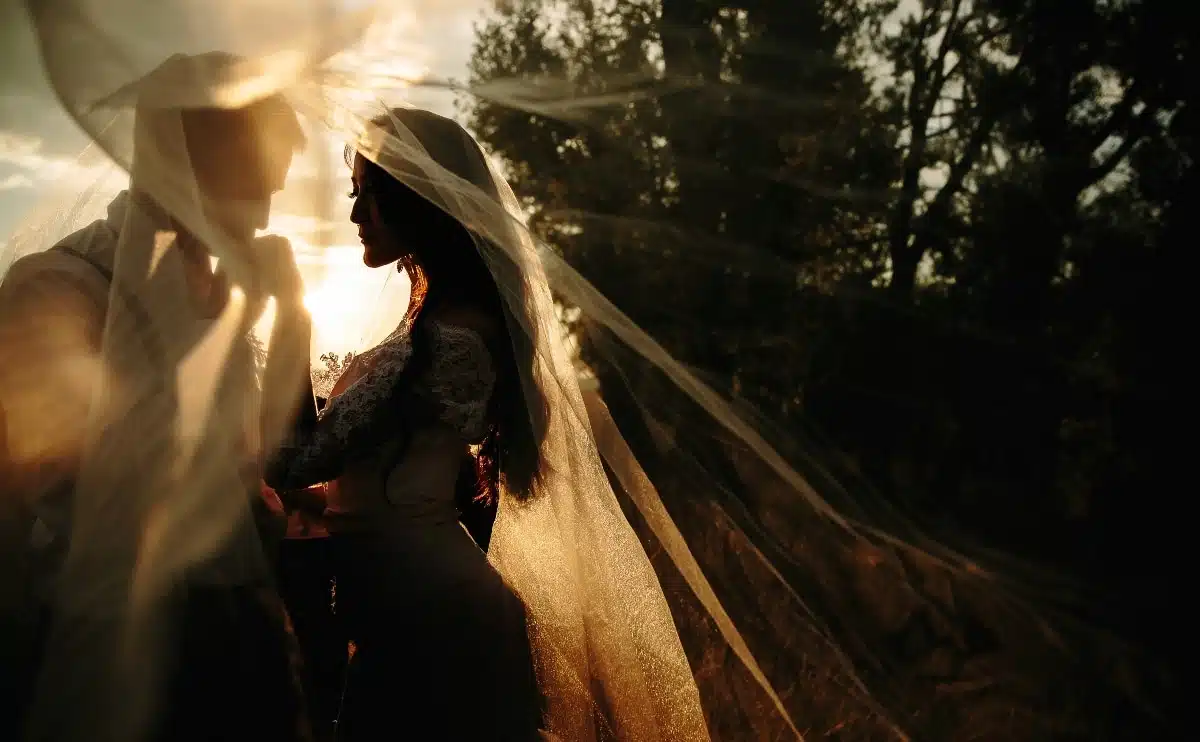
Piercing Poems About Loving Someone You Shouldn’t
Discover a curated selection of the most powerful poems about loving someone you shouldn’t, thoughtfully categorized for your browsing pleasure.
Our collection offers works that explore the complexities of forbidden love, the pain of unrequited love, and the challenges of societal expectations.
With our handpicked selection, you can find the best poems about loving someone you shouldn’t all in one convenient location.
So take a moment to immerse yourself in the raw emotions and honest reflections of these compelling works.
Keep reading and enjoy!
My #1 Favorite Poem About Loving Someone You Shouldn’t

“Forbidden Lave” by Lady Currie
Oh, love! thou that shelterest some
’Neath thy wings, so white and warm,
Wherefore on a bat-like wing
All disguisèd didst thou come
In so terrible a form?
As a dark forbidden thing,
As a demon of the air—
As a sorrow and a sin,
Wherefore cam’st thou thus to me,
As a tempter and a snare?
When the heart that beats within
This, my bosom, warm’d to thee,
Was it from a love of sinning,
From a fatal love of wrong,
From a wish to shun the light?
Nay! I swear at the beginning
Hadst thou sung an angel’s song,—
Had this wrong thing been the right,
Thou hadst seem’d as worth the winning,
And with will as firm and strong
I had lov’d with all my might.
Poems About Loving Someone You Can’t Have

“The Lover Prayeth His Offered Heart to Be Received” by Sir Thomas Wyatt
How oft have I, my dear and cruel foe,
With my great pain to get some peace or truce,
Given you my heart; but you do not use
In so high things, to cast your mind so low.
If any other look for it, as you trow,
Their vain weak hope doth greatly them abuse:
And that thus I disdain, that you refuse;
It was once mine, it can no more be so.
If you it chafe, that it in you can find,
In this exile, no manner of comfort,
Nor live alone, nor where he is called resort;
He may wander from his natural kind.
So shall it be great hurt unto us twain,
And yours the loss, and mine the deadly pain.
“Mongan Thinks of His Past Greatness” by W.B. Yeats
I have drunk ale from the Country of the Young
And weep because I know all things now:
I have been a hazel tree and they hung
The Pilot Star and the Crooked Plough
Among my leaves in times out of mind:
I became a rush that horses tread:
I became a man, a hater of the wind,
Knowing one, out of all things, alone, that his head
Would not lie on the breast or his lips on the hair
Of the woman that he loves, until he dies;
Although the rushes and the fowl of the air
Cry of his love with their pitiful cries.
“Aedh Laments the Loss of Love” by W.B. Yeats
Pale brows, still hands and dim hair,
I had a beautiful friend
And dreamed that the old despair
Would end in love in the end:
She looked in my heart one day
And saw your image was there;
She has gone weeping away.
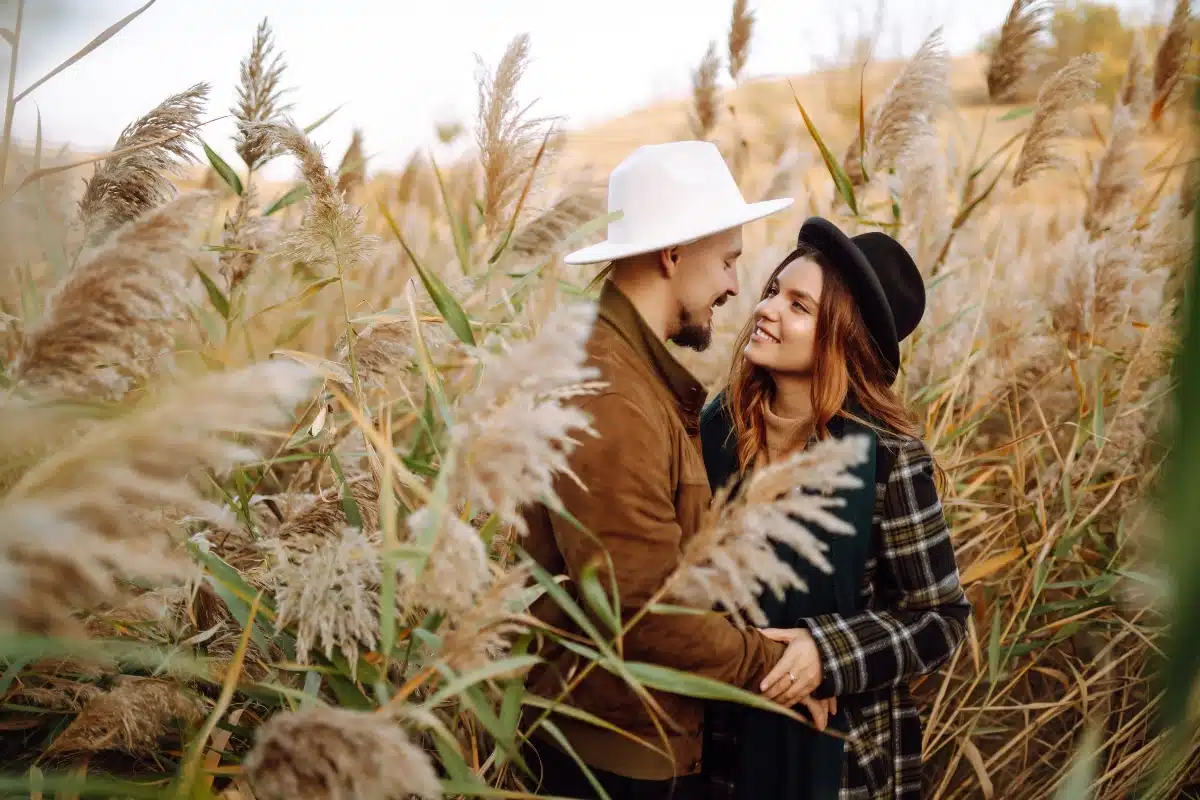
“He Prayeth His Lady to Be True, for No One Can Restrain a Willing Mind” by Sir Thomas Wyatt
Though I myself be bridled of my mind,
Returning me backward by force express;
If thou seek honour, to keep thy promess
Who may thee hold, but thou thyself unbind?
Sigh then no more, since no way man may find
Thy virtue to let, though that frowardness
Of Fortune me holdeth; and yet as I may guess
Though other be present thou art not all behind.
Suffice it then that thou be ready there
At all hours; still under the defence
Of Time, Truth, and Love to save thee from offence.
Crying I burn in a lovely desire,
With my dear Mistress that may not follow;
Whereby mine absence turneth me to sorrow.
“Presences” by W.B. Yeats
This night has been so strange that it seemed
As if the hair stood up on my head.
From going-down of the sun I have dreamed
That women laughing, or timid or wild,
In rustle of lace or silken stuff,
Climbed up my creaking stair. They had read
All I had rhymed of that monstrous thing
Returned and yet unrequited love.
They stood in the door and stood between
My great wood lectern and the fire
Till I could hear their hearts beating:
One is a harlot, and one a child
That never looked upon man with desire,
And one it may be a queen.
“Aedh Pleads With the Elemental Powers” by W.B. Yeats
The powers whose name and shape no living creature knows
Have pulled the Immortal Rose;
And though the Seven Lights bowed in their dance and wept,
The Polar Dragon slept,
His heavy rings uncoiled from glimmering deep to deep:
When will he wake from sleep?
Great Powers of falling wave and wind and windy fire,
With your harmonious choir
Encircle her I love and sing her into peace,
That my old care may cease;
Unfold your flaming wings and cover out of sight
The nets of day and night.
Dim Powers of drowsy thought, let her no longer be
Like the pale cup of the sea,
When winds have gathered and sun and moon burned dim
Above its cloudy rim;
But let a gentle silence wrought with music flow
Whither her footsteps go.

“He Determineth to Cease to Love” by Sir Thomas Wyatt
For to love her for her looks lovely,
My heart was set in thought right firmly,
Trusting by truth to have had redress;
But she hath made another promess,
And hath given me leave full honestly.
Yet do I not rejoice it greatly;
For on my faith I loved too surely,
But reason will that I do cesse,
For to love her.
Since (that in love the pains been deadly),
Methink it best that readily
I do return to my first address;
For at this time too great is the press,
And perils appear too abundantly,
For to love her.
“Complaint for True Love Unrequited” by Sir Thomas Wyatt
What vaileth truth, or by it to take pain?
To strive by steadfastness for to attain
How to be just, and flee from doubleness?
Since all alike, where ruleth craftiness,
Rewarded is both crafty, false, and plain.
Soonest he speeds that most can lie and feign:
True meaning heart is had in high disdain.
Against deceit and cloaked doubleness,
What vaileth truth, or perfect steadfastness?
Deceived is he by false and crafty train,
That means no guile, and faithful doth remain
Within the trap, without help or redress:
But for to love, lo, such a stern mistress,
Where cruelty dwells, alas, it were in vain.
“Against Unworthy Praise” by W.B. Yeats
O heart, be at peace, because
Nor knave nor dolt can break
What’s not for their applause,
Being for a woman’s sake.
Enough if the work has seemed,
So did she your strength renew,
A dream that a lion had dreamed
Till the wilderness cried aloud,
A secret between you two,
Between the proud and the proud.
What, still you would have their praise!
But here’s a haughtier text,
The labyrinth of her days
That her own strangeness perplexed;
And how what her dreaming gave
Earned slander, ingratitude,
From self-same dolt and knave;
Aye, and worse wrong than these.
Yet she, singing upon her road,
Half lion, half child, is at peace.

“To His Love That Hath Given Him Answer of Refusal” by Sir Thomas Wyatt
The answer that ye made to me, my dear,
When I did sue for my poor heart’s redress,
Hath so appall’d my countenance and my cheer,
That in this case I am all comfortless;
Since I of blame no cause can well express.
I have no wrong, where I can claim no right,
Nought ta’en me fro, where I have nothing had,
Yet of my woe I cannot so be quite;
Namely, since that another may be glad
With that, that thus in sorrow makes me sad.
Yet none can claim, I say, by former grant,
That knoweth not of any grant at all;
And by desert, I dare well make avaunt
Of faithful will; there is nowhere that shall
Bear you more truth, more ready at your call.
Now good then, call again that bitter word,
That touch’d your friend so near with pangs of pain;
And say, my dear, that it was said in bord:
Late, or too soon, let it not rule the gain,
Wherewith free will doth true desert retain.
“The Lover Sendeth Sighs to Move His Suit” by Sir Thomas Wyatt
Go, burning sighs, unto the frozen heart,
To break the ice, which pity’s painful dart
Might never pierce: and if that mortal prayer
In heaven be heard, at least yet I desire
That death or mercy end my woful smart.
Take with thee pain, whereof I have my part,
And eke the flame from which I cannot start,
And leave me then in rest, I you require.
Go, burning sighs, fulfill that I desire,
I must go work, I see, by craft and art,
For truth and faith in her is laid apart:
Alas, I cannot therefore now assail her,
With pitiful complaint and scalding fire,
That, from my breast deceivably doth start.
“The Lover Laments the Death of His Love” by Sir Thomas Wyatt
The pillar perish’d is whereto I leant,
The strongest stay of mine unquiet mind;
The like of it no man again can find,
From east to west still seeking though he went,
To mine unhap. For hap away hath rent
Of all my joy the very bark and rind:
And I, alas, by chance am thus assign’d
Daily to mourn, till death do it relent.
But since that thus it is by destiny,
What can I more but have a woful heart;
My pen in plaint, my voice in careful cry,
My mind in woe, my body full of smart;
And I myself, myself always to hate,
Till dreadful death do ease by doleful state.

“Lovers” by Siegfried Sassoon
You were glad to-night: and now you’ve gone away.
Flushed in the dark, you put your dreams to bed;
But as you fall asleep I hear you say
Those tired sweet drowsy words we left unsaid.
Sleep well: for I can follow you, to bless
And lull your distant beauty where you roam;
And with wild songs of hoarded loveliness
Recall you to these arms that were your home.
“To His Love Whom He Had Kissed Against Her Will” by Sir Thomas Wyatt
Alas, Madam, for stealing of a kiss,
Have I so much your mind therein offended?
Or have I done so grievously amiss,
That by no means it may not be amended?
Revenge you then: the readiest way is this;
Another kiss, my life it shall have ended;
For to my mouth the first my heart did suck;
The next shall clean out of my breast it pluck.
“Love Vindicating Its Rejecter” by Aubrey Thomas de Vere
Had I been worthy of the love you gave,
That love withdrawn had left me sad, but strong:
My heart had been as silent as my tongue;
My bed had been unfevered as my grave:
I had not striven for what I could not save:
Back, back to heaven my great hopes I had flung:
To have much suffered, having done no wrong,
Had seemed to me that noble part the brave
Account it ever. What this hour I am
Affirms the unworthiness that in me lurked:
Some sapping poison through my substance worked,
Some sin not trivial, though it lacked a name,
Which ratifies the deed that you have done
With plain approval. Other plea seek none.

“Together” by Siegfried Sassoon
Splashing along the boggy woods all day,
And over brambled hedge and holding clay,
I shall not think of him:
But when the watery fields grow brown and dim,
And hounds have lost their fox, and horses tire,
I know that he’ll be with me on my way
Home through the darkness to the evening fire.
He’s jumped each stile along the glistening lanes;
His hand will be upon the mud-soaked reins;
Hearing the saddle creak,
He’ll wonder if the frost will come next week.
I shall forget him in the morning light;
And while we gallop on he will not speak:
But at the stable-door he’ll say good-night.
“I Sang” by Carl Sandburg
I sang to you and the moon
But only the moon remembers.
I sang
O reckless free-hearted
free-throated rythms,
Even the moon remembers them
And is kind to me.
“Love Charms” by Alfred Bryan
If I cannot be your Master, let me be your Slave!
Let me be the wanton of your breast!
Let me be the lover of your limb!
Torture me until the ultimate I crave.
Let me lift unto your lips a redder cup of wine!
Let me whisper in your ear some new desire—
A warrior flame your white flesh to incarnadine.
Then, let my love put out the fire.
Wed me. Make me swear allegiance to your breast,
And tell me that your body I must share
With other lovers,—more of you possessed,—
So I have you some time, what need I care?

“Dream Love” by George William Russell
I did not deem it half so sweet
To feel thy gentle hand,
As in a dream thy soul to greet
Across wide leagues of land.
Untouched more near to draw to you
Where, amid radiant skies,
Glimmered thy plumes of iris hue,
My Bird of Paradise.
Let me dream only with my heart,
Love first, and after see:
Know thy diviner counterpart
Before I kneel to thee.
So in thy motions all expressed
Thy angel I may view:
I shall not on thy beauty rest,
But beauty’s self in you.
“Affinity” by George William Russell
You and I have found the secret way,
None can bar our love or say us nay:
All the world may stare and never know
You and I are twined together so.
You and I for all his vaunted width
Know the giant Space is but a myth;
Over miles and miles of pure deceit
You and I have found our lips can meet.
You and I have laughed the leagues apart
In the soft delight of heart to heart.
If there’s a gulf to meet or limit set,
You and I have never found it yet.
You and I have trod the backward way
To the happy heart of yesterday,
To the love we felt in ages past.
You and I have found it still to last.
You and I have found the joy had birth
In the angel childhood of the earth,
Hid within the heart of man and maid.
You and I of Time are not afraid.
You and I can mock his fabled wing,
For a kiss is an immortal thing.
And the throb wherein those old lips met
Is a living music in us yet.
“Witch-Wife” by Edna St. Vincent Millay
She is neither pink nor pale,
And she never will be all mine;
She learned her hands in a fairy-tale,
And her mouth on a valentine.
She has more hair than she needs;
In the sun ’tis a woe to me!
And her voice is a string of colored beads,
Or steps leading into the sea.
She loves me all that she can,
And her ways to my ways resign;
But she was not made for any man,
And she never will be all mine.

“To Miss Kelly, the Actress” by Charles Lamb
You are not, Kelly, of the common strain,
That stoop their pride and female honor down
To please that many-headed beast, The Town,
And vend their lavish smiles and tricks for gain;
By fortune thrown amid the actor’s train,
You keep your native dignity of thought;
The plaudits that attend you come unsought,
As tributes due unto your natural vein.
Your tears have passion in them, and a grace
Of genuine freshness, which our hearts avow;
Your smiles are winds whose ways we cannot trace,
That vanish and return we know not how,—
And please the better from a pensive face,
A thoughtful eye, and a reflecting brow.
“After Many Days” by D.H. Lawrence
I wonder if with you, as it is with me,
If under your slipping words, that easily flow
About you as a garment, easily,
Your violent heart beats to and fro!
Long have I waited, never once confessed,
Even to myself, how bitter the separation;
Now, being come again, how make the best
Reparation?
If I could cast this clothing off from me,
If I could lift my naked self to you,
Of if only you would repulse me, a wound would be
Good; it would let the ache come through.
But that you hold me still so kindly cold
Aloof my floating heart will not allow;
Yea, but I loathe you that you should withhold
Your pleasure now.
“My Secret” by Henry Wadsworth Longfellow
My soul its secret has, my life too has its mystery,
A love eternal in a moment’s space conceived;
Hopeless the evil is, I have not told its history,
And she who was the cause nor knew it nor believed.
Alas! I shall have passed close by her unperceived,
Forever at her side, and yet forever lonely,
I shall unto the end have made life’s journey, only
Daring to ask for naught, and having naught received.
For her, though God has made her gentle and endearing,
She will go on her way distraught and without hearing
These murmurings of love that round her steps ascend,
Piously faithful still unto her austere duty,
Will say, when she shall read these lines full of her beauty,
“Who can this woman be?” and will not comprehend.

“She, to Him” by Thomas Hardy
This love puts all humanity from me;
I can but maledict her, pray her dead,
For giving love and getting love of thee—
Feeding a heart that else mine own had fed!
How much I love I know not, life not known,
Save as some unit I would add love by;
But this I know, my being is but thine own—
Fused from its separateness by ecstasy.
And thus I grasp thy amplitudes, of her
Ungrasped, though helped by nigh-regarding eyes;
Canst thou then hate me as an envier
Who see unrecked what I so dearly prize?
Believe me, Lost One, Love is lovelier
The more it shapes its moans in selfish-wise.
“Gipsy” by D.H. Lawrence
I, the man with the red scarf,
Will give thee what I have, this last week’s earnings.
Take them, and buy thee a silver ring
And wed me, to ease my yearnings.
For the rest, when thou art wedded
I’ll wet my brow for thee
With sweat, I’ll enter a house for thy sake,
Thou shalt shut doors on me.
“A Complaint by Night of the Lover Not Beloved” by Henry Howard, Earl of Surrey
Alas! so all things now do hold their peace!
Heaven and earth disturbed in no thing;
The beasts, the air, the birds their song do cease,
The nightès car the stars about doth bring.
Calm is the sea; the waves work less and less:
So am not I, whom love, alas! doth wring,
Bringing before my face the great increase
Of my desires, whereat I weep and sing,
In joy and woe, as in a doubtful ease.
For my sweet thoughts sometime do pleasure bring;
But by and by, the cause of my disease
Gives me a pang, that inwardly doth sting,
When that I think what grief it is again,
To live and lack the thing should rid my pain.
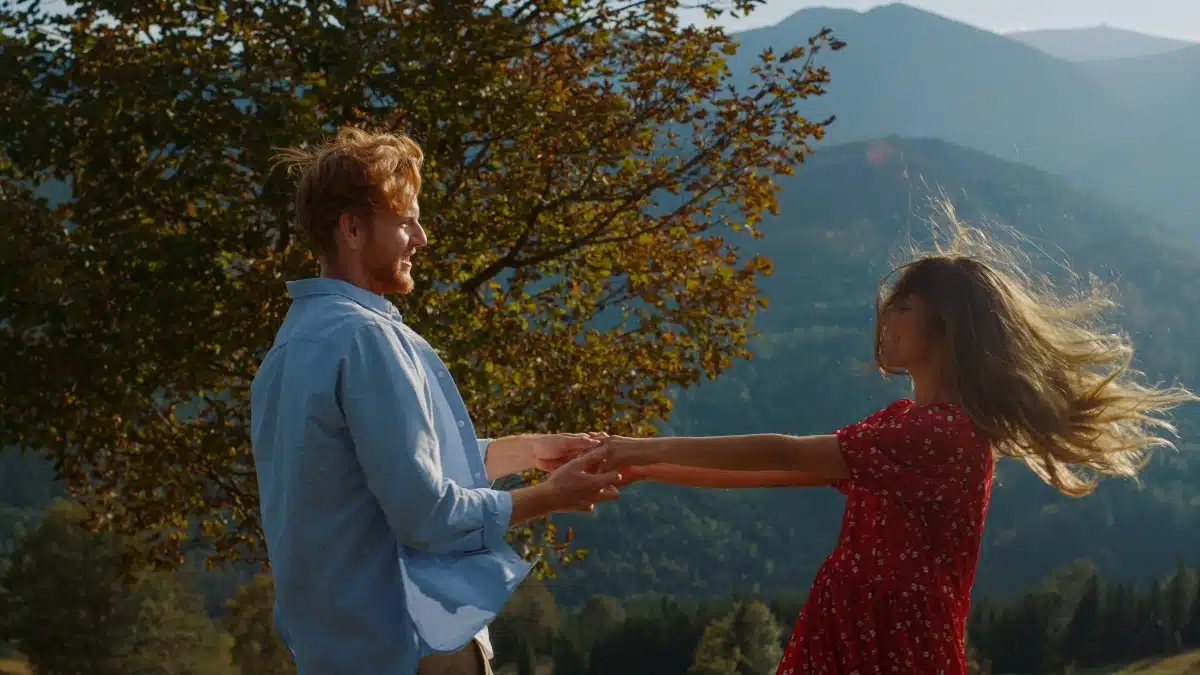
“An Ideal” by John Donne
When I do love, my mistress must be fair,
Yet not extremely so, lest I despair.
When I do love, my mistress must be wise,
Yet not a wit; I’ll not be so precise.
When I do love, my mistress chaste must be,
Not obstinate, for then she’s not for me.
When I do love, my mistress must be kind,
Yet not before I her by merit bind.
She whom I love need not for to be rich,
For virtue and not wealth doth me bewitch.
She whom I love may once have loved before,
For, meeting equal, we can love the more.
And, to conclude, my mistress must be young,
And last (that’s hardest) not have too much tongue.
“She, to Him” by Thomas Hardy
I will be faithful to thee; aye, I will!
And Death shall choose me with a wondering eye
That he did not discern and domicile
One his by right ever since that last Good-bye!
I have no care for friends, or kin, or prime
Of manhood who deal gently with me here;
Amid the happy people of my time
Who work their love’s fulfilment, I appear
Numb as a vane that cankers on its point,
True to the wind that kissed ere canker came;
Despised by souls of Now, who would disjoint
The mind from memory, and make Life all aim,
My old dexterities of hue quite gone,
And nothing left for Love to look upon.
“Along the Field as We Came By” by A.E. Housman
Along the field as we came by
A year ago, my love and I,
The aspen over stile and stone
Was talking to itself alone.
‘Oh who are these that kiss and pass?
A country lover and his lass;
Two lovers looking to be wed;
And time shall put them both to bed,
But she shall lie with earth above,
And he beside another love.’
And sure enough beneath the tree
There walks another love with me,
And overhead the aspen heaves
Its rainy-sounding silver leaves;
And I spell nothing in their stir,
But now perhaps they speak to her,
And plain for her to understand
They talk about a time at hand
When I shall sleep with clover clad,
And she beside another lad.

“Revelation” by Robert Frost
We make ourselves a place apart
Behind light words that tease and flout,
But oh, the agitated heart
Till someone find us really out.
’Tis pity if the case require
(Or so we say) that in the end
We speak the literal to inspire
The understanding of a friend.
But so with all, from babes that play
At hide-and-seek to God afar,
So all who hide too well away
Must speak and tell us where they are.
“She, to Him” by Thomas Hardy
Perhaps, long hence, when I have passed away,
Some other’s feature, accent, thought like mine,
Will carry you back to what I used to say,
And bring some memory of your love’s decline.
Then you may pause awhile and think, “Poor jade!”
And yield a sigh to me—as gift benign,
Not as the tittle of a debt unpaid
To one who could to you her all resign—
And thus reflecting, you will never see
That your thin thought, in two small words conveyed,
Was no such fleeting phantom-thought to me,
But the Whole Life wherein my part was played;
And you amid its fitful masquerade
A Thought—as I in yours but seem to be.
“My November Guest” by Robert Frost
My Sorrow, when she’s here with me,
Thinks these dark days of autumn rain
Are beautiful as days can be;
She loves the bare, the withered tree;
She walks the sodden pasture lane.
Her pleasure will not let me stay.
She talks and I am fain to list:
She’s glad the birds are gone away,
She’s glad her simple worsted gray
Is silver now with clinging mist.
The desolate, deserted trees,
The faded earth, the heavy sky,
The beauties she so truly sees,
She thinks I have no eye for these,
And vexes me for reason why.
Not yesterday I learned to know
The love of bare November days
Before the coming of the snow,
But it were vain to tell her so,
And they are better for her praise.

“Woman’s Constancy” by John Donne
Now thou hast loved me one whole day,
To-morrow when thou leavest, what wilt thou say?
Wilt thou then antedate some new-made vow?
Or say that now
We are not just those persons which we were?
Or that oaths made in reverential fear
Of Love, and his wrath, any may forswear?
Or, as true deaths true marriages untie,
So lovers’ contracts, images of those,
Bind but till sleep, death’s image, them unloose?
Or, your own end to justify,
For having purposed change and falsehood, you
Can have no way but falsehood to be true?
Vain lunatic, against these ’scapes I could
Dispute, and conquer, if I would;
Which I abstain to do,
For by to-morrow I may think so too.
“The Lady and Her Viol” by John Donne
Why dost thou, dear, affect thy viol so,
And let thy love forlorn with anguish go?
Thou’lt kindly set him on thy lap, embrace
And almost kiss, while I must void the place.
Thou’lt string him truly, tune him sweetly, when
Thou’lt wrest me out of tune and crack me then.
Thou’lt stop his frets, but set no date to mine.
Thou’lt give whate’er he wants, but let me pine.
Thou know’st him hollow-hearted, yet wilt hear
Him thoroughout with an attentive ear;
And sing him such a pleasing lullaby,
Would charm hell’s churlish porter’s watchful eye,
Keeping true time with him as true may be,
But find no time to keep thee true to me.
Dear, as the instrument would I were thine,
That thou mightst play on me, or thou wert mine.
“The Winter It Is Past” by Robert Burns
The winter it is past, and the summer comes at last
And the small birds, they sing on ev’ry tree;
Now ev’ry thing is glad, while I am very sad,
Since my true love is parted from me.
The rose upon the breer, by the waters running clear,
May have charms for the linnet or the bee;
Their little loves are blest, and their little hearts at rest,
But my true love is parted from me.

“Stay My Charmer” by Robert Burns
Stay my charmer, can you leave me?
Cruel, cruel to deceive me;
Well you know how much you grieve me;
Cruel charmer, can you go!
Cruel charmer, can you go!
By my love so ill-requited,
By the faith you fondly plighted,
By the pangs of lovers slighted,
Do not, do not liave me so!
Do not, do not leave me so!
“My Love She’s but a Lassie Yet” by Robert Burns
My love, she’s but a lassie yet,
My love, she’s but a lassie yet;
We’ll let her stand a year or twa,
She’ll no be half sae saucy yet;
I rue the day I sought her, O!
I rue the day I sought her, O!
Wha gets her needs na say she’s woo’d,
But he may say he’s bought her, O.
Come, draw a drap o’ the best o’t yet,
Come, draw a drap o’ the best o’t yet,
Gae seek for pleasure whare you will,
But here I never miss’d it yet,
We’re a’ dry wi’ drinkin o’t,
We’re a’ dry wi’ drinkin o’t;
The minister kiss’d the fiddler’s wife;
He could na preach for thinkin o’t.
“I Love My Love in Secret” by Robert Burns
My Sandy gied to me a ring,
Was a’ beset wi’ diamonds fine;
But I gied him a far better thing,
I gied my heart in pledge o’ his ring.
My Sandy O, my Sandy O,
My bonie, bonie Sandy O;
Tho’ the love that I owe
To thee I dare na show,
Yet I love my love in secret, my Sandy O.
My Sandy brak a piece o’ gowd,
While down his cheeks the saut tears row’d;
He took a hauf, and gied it to me,
And I’ll keep it till the hour I die.
My Sand O, &c.

“Love’s Fidelity” by Francesco Petrarca
Set me whereas the sun doth parch the green,
Or where his beams do not dissolve the ice:
In temperate heat, where he is felt and seen;
In presence prest of people mad or wise;
Set me in high, or yet in low degree;
In longest night, or in the shortest day;
In clearest sky, or where clouds thickest be;
In lusty youth, or when my hairs are grey:
Set me in heaven, in earth, or else in hell,
In hill or dale, or in the foaming flood;
Thrall, or at large, alive whereso I dwell,
Sick or in health, in evil fame or good,
Hers will I be; and only with this thought
Content myself although my chance be nought.
“The Way That Lovers Use” by Rupert Brooke
The way that lovers use is this;
They bow, catch hands, with never a word,
And their lips meet, and they do kiss,
—So I have heard.
They queerly find some healing so,
And strange attainment in the touch;
There is a secret lovers know,
—I have read as much.
And theirs no longer joy nor smart,
Changing or ending, night or day;
But mouth to mouth, and heart on heart,
—So lovers say.
“For the Sake O’ Somebody” by Robert Burns
My heart is sair—I dare na tell,
My heart is sair for Somebody;
I could wake a winter night
For the sake o’ Somebody.
O-hon! for Somebody!
O-hey! for Somebody!
I could range the world around,
For the sake o’ Somebody.
Ye Powers that smile on virtuous love,
O, sweetly smile on Somebody!
Frae ilka danger keep him free,
And send me safe my Somebody!
O-hon! for Somebody!
O-hey! for Somebody!
I wad do—what wad I not?
For the sake o’ Somebody.
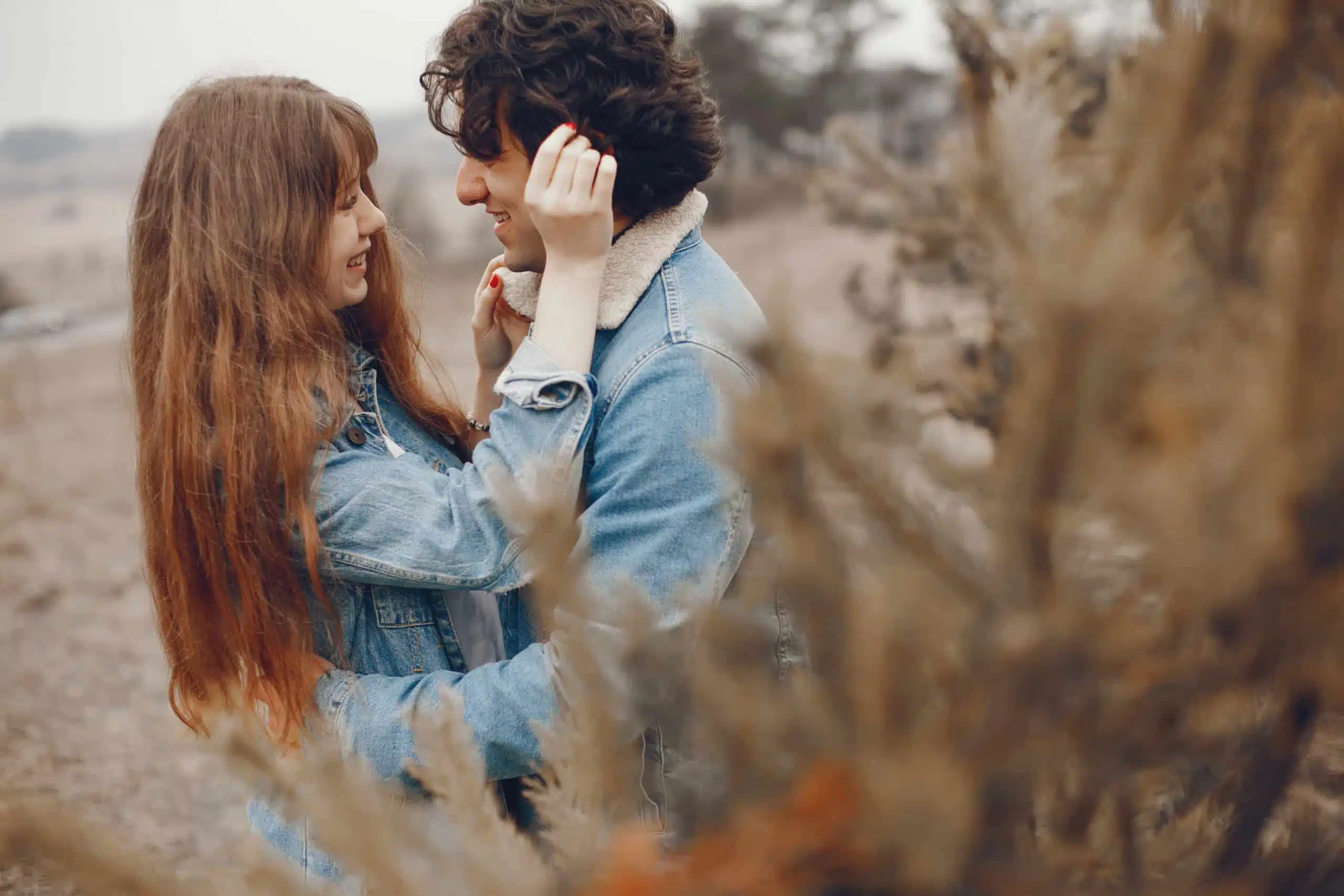
“Sweethearts and Wives” by Daniel O’Connell
If sweethearts were sweethearts always,
Whether as maid or wife,
No drop would be half so pleasant
In the mingled draught of life.
But the sweetheart has smiles and blushes
When the wife has frowns and sighs,
And the wife’s have a wrathful glitter
For the glow of the sweetheart’s eyes.
If lovers were lovers always,
The same to sweetheart and wife,
Who would change for a future of Eden
The joys of this checkered life?
But husbands grow grave and silent,
And cares on the anxious brow
Oft replace the sunshine that perished
At the words of the marriage vow.
Happy is he whose sweetheart
Is wife and sweetheart still—
Whose voice, as of old, can charm;
Whose kiss, as of old, can thrill;
Who has plucked the rose, to find ever
Its beauty and fragrance increase,
As the flush of passion is mellowed
In love’s unmeasured peace;
Who sees in the step a lightness;
Who finds in the form a grace;
Who reads an unaltered brightness
In the witchery of the face,
Undimmed and unchanged. Ah! happy
Is he crowned with such a life,
Who drinks the wife, pledging the sweetheart,
And toasts in the sweetheart the wife.
“Too Late” by Matthew Arnold
Each on his own strict line we move,
And some find death ere they find love.
So far apart their lives are thrown
From the twin soul that halves their own.
And sometimes, by still harder fate,
The lovers meet, but meet too late.
Thy heart is mine!—True, true! ah true!
Then, love, thy hand!—Ah no! adieu!
“Day and Night” by Rupert Brooke
Through my heart’s palace Thoughts unnumbered throng;
And there, most quiet and, as a child, most wise,
High-throned you sit, and gracious. All day long
Great Hopes gold-armoured, jester Fantasies,
And pilgrim Dreams, and little beggar Sighs,
Bow to your benediction, go their way.
And the grave jewelled courtier Memories
Worship and love and tend you, all the day.
But when I sleep, and all my thoughts go straying,
When the high session of the day is ended,
And darkness comes; then, with the waning light,
By lilied maidens on your way attended,
Proud from the wonted throne, superbly swaying,
You, like a queen, pass out into the night.

“Paula” by Carl Sandburg
Nothing else in this song—only your face.
Nothing else here—only your drinking, night-gray eyes.
The pier runs into the lake straight as a rifle barrel.
I stand on the pier and sing how I know you mornings.
It is not your eyes, your face, I remember.
It is not your dancing, race-horse feet.
It is something else I remember you for on the pier mornings.
Your hands are sweeter than nut-brown bread when you touch me.
Your shoulder brushes my arm—a south-west wind crosses the pier.
I forget your hands and your shoulder and I say again:
Nothing else in this song—only your face.
Nothing else here—only your drinking, night-gray eyes.
“Success” by Rupert Brooke
I think if you had loved me when I wanted;
If I’d looked up one day, and seen your eyes,
And found my wild sick blasphemous prayer granted,
And your brown face, that’s full of pity and wise,
Flushed suddenly; the white godhead in new fear
Intolerably so struggling, and so shamed;
Most holy and far, if you’d come all too near,
If earth had seen Earth’s lordliest wild limbs tamed,
Shaken, and trapped, and shivering, for My touch—
Myself should I have slain? or that foul you?
But this the strange gods, who had given so much,
To have seen and known you, this they might not do.
One last shame’s spared me, one black word’s unspoken;
And I’m alone; and you have not awoken.
“The Lake” by Matthew Arnold
Again I see my bliss at hand;
The town, the lake are here.
My Marguerite smiles upon the strand
Unalter’d with the year.
I know that graceful figure fair,
That cheek of languid hue;
I know that soft enkerchief’d hair,
And those sweet eyes of blue.
Again I spring to make my choice;
Again in tones of ire
I hear a God’s tremendous voice—
‘Be counsell’d, and retire!’
Ye guiding Powers, who join and part,
What would ye have with me?
Ah, warn some more ambitious heart,
And let the peaceful be!

“Unfortunate” by Rupert Brooke
Heart, you are restless as a paper scrap
That’s tossed down dusty pavements by the wind;
Saying, “She is most wise, patient and kind.
Between the small hands folded in her lap
Surely a shamed head may bow down at length,
And find forgiveness where the shadows stir
About her lips, and wisdom in her strength,
Peace in her peace. Come to her, come to her!”…
She will not care. She’ll smile to see me come,
So that I think all Heaven in flower to fold me.
She’ll give me all I ask, kiss me and hold me,
And open wide upon that holy air
The gates of peace, and take my tiredness home,
Kinder than God. But, heart, she will not care.
“The Betrothal” by Edna St. Vincent Millay
Oh, come, my lad, or go, my lad,
And love me if you like.
I shall not hear the door shut
Nor the knocker strike.
Oh, bring me gifts or beg me gifts,
And wed me if you will.
I’d make a man a good wife,
Sensible and still.
And why should I be cold, my lad,
And why should you repine,
Because I love a dark head
That never will be mine?
I might as well be easing you
As lie alone in bed
And waste the night in wanting
A cruel dark head.
You might as well be calling yours
What never will be his,
And one of us be happy.
There’s few enough as is.
“Did Not” by Thomas Moore
’Twas a new feeling—something more
Than we had dared to own before,
Which then we hid not:
We saw it in each other’s eye,
And wished, in every half-breathed sigh,
To speak, but did not.
She felt my lips’ impassioned touch—
’Twas the first time I dare so much,
And yet she chid not;
But whispered o’er my burning brow,
“Oh, do you doubt I love you now?”
Sweet soul! I did not.
Warmly I felt her bosom thrill.
I pressed it closer, closer still,
Though gently bid not,
Till—oh! the world hath seldom heard
Of lovers, who so nearly erred,
And yet, who did not.

“I Dreamed a Princess Came to Me” by Heinrich Heine
I dreamed a princess came to me
With pale and tearful face.
We sat beneath the linden tree
In lovers’ fond embrace.
“I do not want thy father’s throne,
Nor yet his sceptre of gold,
His diamond crown I would not own—
Thee, fairest, I want to hold.”
“That may not be,” she spake to me,
“I lie in my grave below—
Only at night I come to thee,
Because I love thee so.”
“Since We Your Husband Daily See” by Matthew Prior
Since we your husband daily see
So jealous out of season,
Phillis, let you and I agree
To make him so with reason.
I’m vext to think, that every night
A sot, within thy arms,
Tasting the most divine delight,
Should sully all your charms;
While fretting I must lie alone,
Cursing the powers divine,
That undeservedly have thrown
A pearl unto a swine.
Then, Phillis, heal my wounded heart,
My burning passion cool;
Let me at least in thee have part
With thy insipid fool.
“If Thou Indifference” by Luís de Camões
If thou indifference wilt display to none,
Rather towards every one endearing art,
If thou towards every one dost show a heart,
That fullest love and gentleness doth own,
Henceforth towards me be thy disfavour shown;
In odious scorn or coldness stand apart;
There shall I come to think, beneath the smart,
Thou showest favour unto me alone.
For if to all so tender thou wilt prove,
’Tis clear the only favoured one is he
Towards whom thine eye doth with displeasure move.
Scarcely, indeed, can I be loved by thee,
If in thy heart thou hast another love,
For Love is one, nor can divided be.

“Fair as the Day” by August Graf von Platen-Hallermünde
Fair as the day that bodes as fair a morrow,
With noble brow, with eyes in heaven’s dew,
Of tender years, and charming as the new,
So found I thee,—so found I, too, my sorrow.
O, could I shelter in thy bosom borrow,
There most collected where the most unbent!
O, would this coyness were already spent,
That aye adjourns our union till to-morrow!
But canst thou hate me? Art thou yet unshaken?
Wherefore refusest thou the soft confession
To him who loves, yet feels himself forsaken?
Oh, when thy future love doth make expression,
An anxious rapture will the moment waken,
As with a youthful prince at his accession.
“O Dearest, Canst Thou Tell Me Why” by Heinrich Heine
O dearest, canst thou tell me why
The rose should be so pale?
And why the azure violet
Should wither in the vale?
And why the lark should in the cloud
So sorrowfully sing?
And why from loveliest balsam-buds
A scent of death should spring?
And why the sun upon the mead
So chillingly should frown?
And why the earth should, like a grave,
Be mouldering and brown?
And why it is that I myself
So languishing should be?
And why it is, my heart of hearts,
That thou forsakest me?
“Love Athirst” by Ruth Bassett Eddy
Last night, do you recall? You turned your head,
And laid your lips to mine, as we lay there
Under the stars. The sweetness of the night
Somehow became a part of that long kiss,
Until, grown weak with passion,
You fell asleep. But I could not find rest.
The lips that clung to mine no longer gave
A passionate response. They were
Soft and warm and still against my own,—
The lips of a contented, sleepy child.
And oh, I was ashamed—ashamed to feel
Desire to take from your unconscious lips
The drink love had to offer you and me.
I would have been content to let the hours
Go on toward endless time, if I could lie
Against your body’s close and yielding warmth;
Heart to heart and breath to breath,
My mouth against your own until I knew
The sweet exhaustion that had given you sleep.
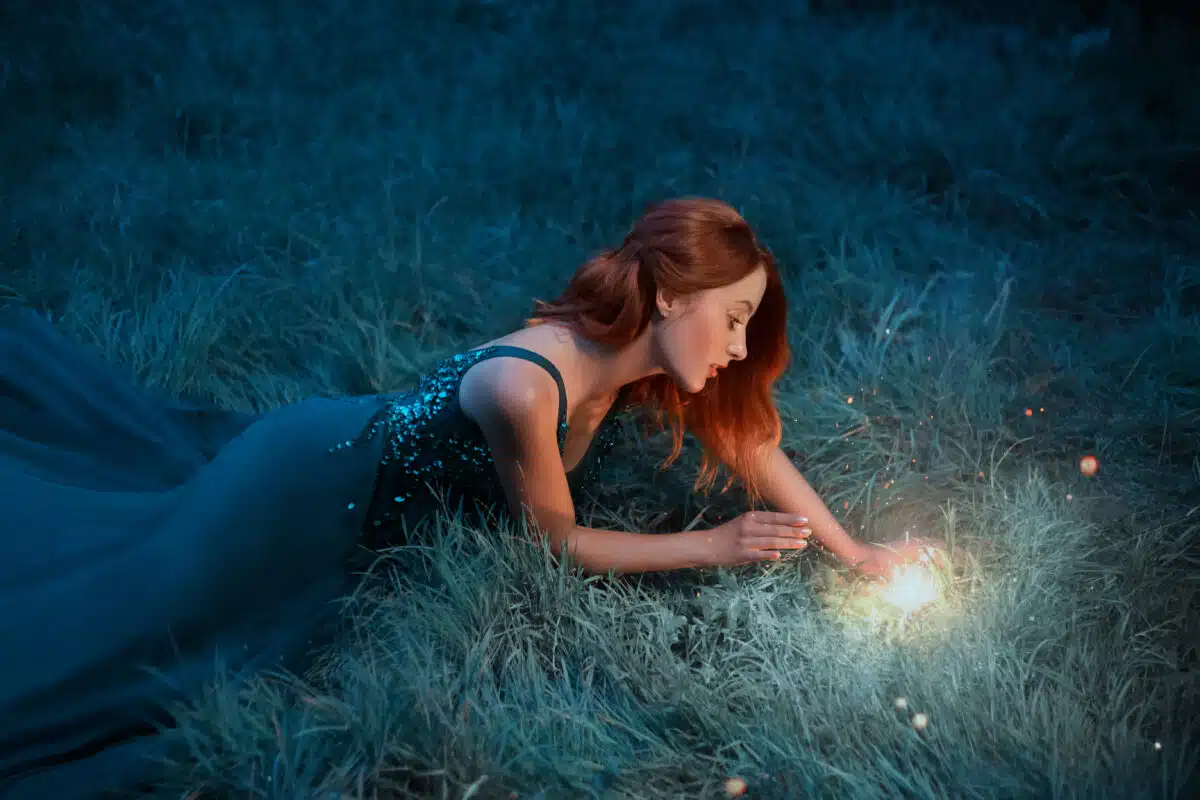
“The Secret” by Felix Arvers
My life its secret and its mystery has,
A love eternal in a moment born;
There is no hope to help my evil case,
And she knows nought who makes me thus forlorn.
And I unmark’d shall ever by her pass
Aye at her side, and yet for aye alone;
And I shall waste my bitter days, alas!
And never dare to claim my love, my own!
And she, whom God has made so sweet and dear,
Will go her way, distraught, and never hear
This murmur round her of my love and pain;
To austere duty true, will go her way,
And read these verses, full of her, and say,
“Who is this woman that he sings of then?”
Poems About Loving Someone Forever

“Alter? When the Hills Do” by Emily Dickinson
Alter? When the hills do.
Falter? When the sun
Question if his glory
Be the perfect one.
Surfeit? When the daffodil
Doth of the dew:
Even as herself, O friend!
I will of you!
“Aedh Tells of a Valley Full of Lovers” by W.B. Yeats
I dreamed that I stood in a valley, and amid sighs,
For happy lovers passed two by two where I stood;
And I dreamed my lost love came stealthily out of the wood
With her cloud-pale eyelids falling on dream-dimmed eyes:
I cried in my dream ‘O women bid the young men lay
‘Their heads on your knees, and drown their eyes with your hair,
‘Or remembering hers they will find no other face fair
‘Till all the valleys of the world have been withered away.’
“A Deep-Sworn Vow” by W.B. Yeats
Others because you did not keep
That deep-sworn vow have been friends of mine;
Yet always when I look death in the face,
When I clamber to the heights of sleep,
Or when I grow excited with wine,
Suddenly I meet your face.

“Aedh Tells of the Perfect Beauty” by W.B. Yeats
O cloud-pale eyelids, dream-dimmed eyes
The poets labouring all their days
To build a perfect beauty in rhyme
Are overthrown by a woman’s gaze
And by the unlabouring brood of the skies:
And therefore my heart will bow, when dew
Is dropping sleep, until God burn time,
Before the unlabouring stars and you.
“The Lover Describeth His Being Stricken With Sight of His Love” by Sir Thomas Wyatt
The lively sparks that issue from those eyes,
Against the which there vaileth no defence,
Have pierc’d my heart, and done it none offence,
With quaking pleasure more than once or twice.
Was never man could any thing devise,
Sunbeams to turn with so great vehemence
To daze man’s sight, as by their bright presence
Dazed am I; much like unto the guise
Of one stricken with dint of lightning,
Blind with the stroke, and crying here and there;
So call I for help, I not when nor where,
The pain of my fall patiently bearing:
For straight after the blaze, as is no wonder,
Of deadly noise hear I the fearful thunder.
“Aedh Gives His Beloved Certain Rhymes” by W.B. Yeats
Fasten your hair with a golden pin,
And bind up every wandering tress;
I bade my heart build these poor rhymes:
It worked at them, day out, day in,
Building a sorrowful loveliness
Out of the battles of old times.
You need but lift a pearl-pale hand,
And bind up your long hair and sigh;
And all men’s hearts must burn and beat;
And candle-like foam on the dim sand,
And stars climbing the dew-dropping sky,
Live but to light your passing feet.

“The Heart of the Woman” by W.B. Yeats
O what to me the little room
That was brimmed up with prayer and rest;
He bade me out into the gloom,
And my breast lies upon his breast.
O what to me my mother’s care,
The house where I was safe and warm;
The shadowy blossom of my hair
Will hide us from the bitter storm.
O hiding hair and dewy eyes,
I am no more with life and death,
My heart upon his warm heart lies,
My breath is mixed into his breath.
“The Lover Confesseth Him in Love With Phyllis” by Sir Thomas Wyatt
If waker care; if sudden pale colour;
If many sighs with little speech to plain:
Now joy, now woe, if they my chere distain;
For hope of small, if much to fear therefore;
To haste or slack, my pace to less, or more;
Be sign of love, then do I love again.
If thou ask whom; sure, since I did refrain
Brunet, that set my wealth in such a roar,
The unfeigned cheer of Phyllis hath the place
That Brunet had; she hath, and ever shall.
She from myself now hath me in her grace;
She hath in hand my wit, my will, and all.
My heart alone well worthy she doth stay,
Without whose help scant do I live a day.
“Margaret” by Jean Blewett
Her eyes—upon a summer’s day
God’s skies are not more blue than they.
Her hair—you’ve seen a sunbeam bold
Made up of just such threads of gold.
Her cheek—the leaf which nearest grows
The dewy heart of June’s red rose.
Her mouth—full lipped, and subtly sweet
As brier drowned in summer heat.
Her heart—December’s chill and snow;
Heaven pity me, who love her so!

“Of His Love Called Anna” by Sir Thomas Wyatt
What word is that, that changeth not,
Though it be turn’d and made in twain?
It is mine Anna, God it wot,
The only causer of my pain;
My love that meedeth with disdain.
Yet is it loved, what will you more?
It is my salve, and eke my sore.
“A Decade” by Amy Lowell
When you came, you were like red wine and honey,
And the taste of you burnt my mouth with its sweetness.
Now you are like morning bread,
Smooth and pleasant.
I hardly taste you at all for I know your savour,
But I am completely nourished.
“Commemoration” by Claude McKay
When first your glory shone upon my face
My body kindled to a mighty flame,
And burnt you yielding in my hot embrace
Until you swooned to love, breathing my name.
And wonder came and filled our night of sleep,
Like a new comet crimsoning the sky;
And stillness like the stillness of the deep
Suspended lay as an unuttered sigh.
I never again shall feel your warm heart flushed,
Panting with passion, naked unto mine,
Until the throbbing world around is hushed
To quiet worship at our scented shrine.
Nor will your glory seek my swarthy face,
To kindle and to change my jaded frame
Into a miracle of godlike grace,
Transfigured, bathed in your immortal flame.

“Madonna Mia” by Oscar Wilde
A lily-girl, not made for this world’s pain,
With brown, soft hair close braided by her ears,
And longing eyes half veiled by slumberous tears
Like bluest water seen through mists of rain:
Pale cheeks whereon no love hath left its stain,
Red underlip drawn in for fear of love,
And white throat, whiter than the silvered dove,
Through whose wan marble creeps one purple vein.
Yet, though my lips shall praise her without cease,
Even to kiss her feet I am not bold,
Being o’ershadowed by the wings of awe.
Like Dante, when he stood with Beatrice
Beneath the flaming Lion’s breast, and saw
The seventh Crystal, and the Stair of Gold.
“The Great Hunt” by Carl Sandburg
I cannot tell you now;
When the wind’s drive and whirl
Blow me along no longer,
And the wind’s a whisper at last—
Maybe I’ll tell you then—
some other time.
When the rose’s flash to the sunset
Reels to the rack and the twist,
And the rose is a red bygone,
When the face I love is going
And the gate to the end shall clang,
And it’s no use to beckon or say, “So long”—
Maybe I’ll tell you then—
some other time.
I never knew any more beautiful than you:
I have hunted you under my thoughts,
I have broken down under the wind
And into the roses looking for you.
I shall never find any
greater than you.
“If Truth in Hearts That Perish” by A.E. Housman
If truth in hearts that perish
Could move the powers on high,
I think the love I bear you
Should make you not to die.
Sure, sure, if stedfast meaning,
If single thought could save,
The world might end to-morrow,
You should not see the grave.
This long and sure-set liking,
This boundless will to please,
—Oh, you should live for ever
If there were help in these.
But now, since all is idle,
To this lost heart be kind,
Ere to a town you journey
Where friends are ill to find.

“My Bonie Bell” by Robert Burns
The smiling Spring comes in rejoicing,
And surly Winter grimly flies;
Now crystal clear are the falling waters,
And bonie blue are the sunny skies.
Fresh o’er the mountains breaks forth the morning,
The ev’ning gilds the ocean’s swell;
All creatures joy in the sun’s returning,
And I rejoice in my bonie Bell.
The flowery Spring leads sunny Summer,
The yellow Autumn presses near;
Then in his turn comes gloomy Winter,
Till smiling Spring again appear:
Thus seasons dancing, life advancing,
Old Time and Nature their changes tell;
But never ranging, still unchanging,
I adore my bonie Bell.
“Circles of Doors” by Carl Sandburg
I love him, I love him, ran the patter of her lips
And she formed his name on her tongue and sang
And she sent him word she loved him so much,
So much, and death was nothing; work, art, home,
All was nothing if her love for him was not first
Of all; the patter of her lips ran, I love him,
I love him; and he knew the doors that opened
Into doors and more doors, no end of doors,
And full length mirrors doubling and tripling
The apparitions of doors: circling corridors of
Looking glasses and doors, some with knobs, some
With no knobs, some opening slow to a heavy push,
And some jumping open at a touch and a hello.
And he knew if he so wished he could follow her
Swift running through circles of doors, hearing
Sometimes her whisper, I love him, I love him,
And sometimes only a high chaser of laughter
Somewhere five or ten doors ahead or five or ten
Doors behind, or chittering h-st, h-st, among corners
Of the tall full-length dusty looking glasses.
I love, I love, I love, she sang short and quick in
High thin beaten soprano and he knew the meanings,
The high chaser of laughter, the doors on doors
And the looking glasses, the room to room hunt,
The ends opening into new ends always.
“The Story of the Ashes and the Flame” by Edwin A. Robinson
There she was always coming pretty soon
To fool him back, with penitent scared eyes
That had in them the laughter of the moon
For baffled lovers, and to make him think—
Before she gave him time enough to wink—
Her kisses were the keys to Paradise.
No matter why, nor whence, nor when she came,
There was her place. No matter what men said,
No matter what she was; living or dead,
Faithful or not, he loved her all the same.
The story was as old as human shame,
But ever since that lonely night she fled,
With books to blind him, he had only read
The story of the ashes and the flame.

“You” by Ruth Guthrie Harding
Deep in the heart of me,
Nothing but You!
See through the art of me—
Deep in the heart of me
Find the best part of me,
Changeless and true.
Deep in the heart of me,
Nothing but You!
“The Sea Hath Its Pearls” by Henry Wadsworth Longfellow
The sea hath its pearls,
The heaven hath its stars;
But my heart, my heart,
My heart hath its love.
Great are the sea and the heaven,
Yet greater is my heart;
And fairer than pearls and stars
Flashes and beams my love.
Thou little, youthful maiden,
Come unto my great heart;
My heart, and the sea, and the heaven
Are melting away with love!
“It Nods and Curtseys and Recovers” by A.E. Housman
It nods and curtseys and recovers
When the wind blows above,
The nettle on the graves of lovers
That hanged themselves for love.
The nettle nods, the winds blows over,
The man, he does not move,
The lover of the grave, the lover
That hanged himself for love.
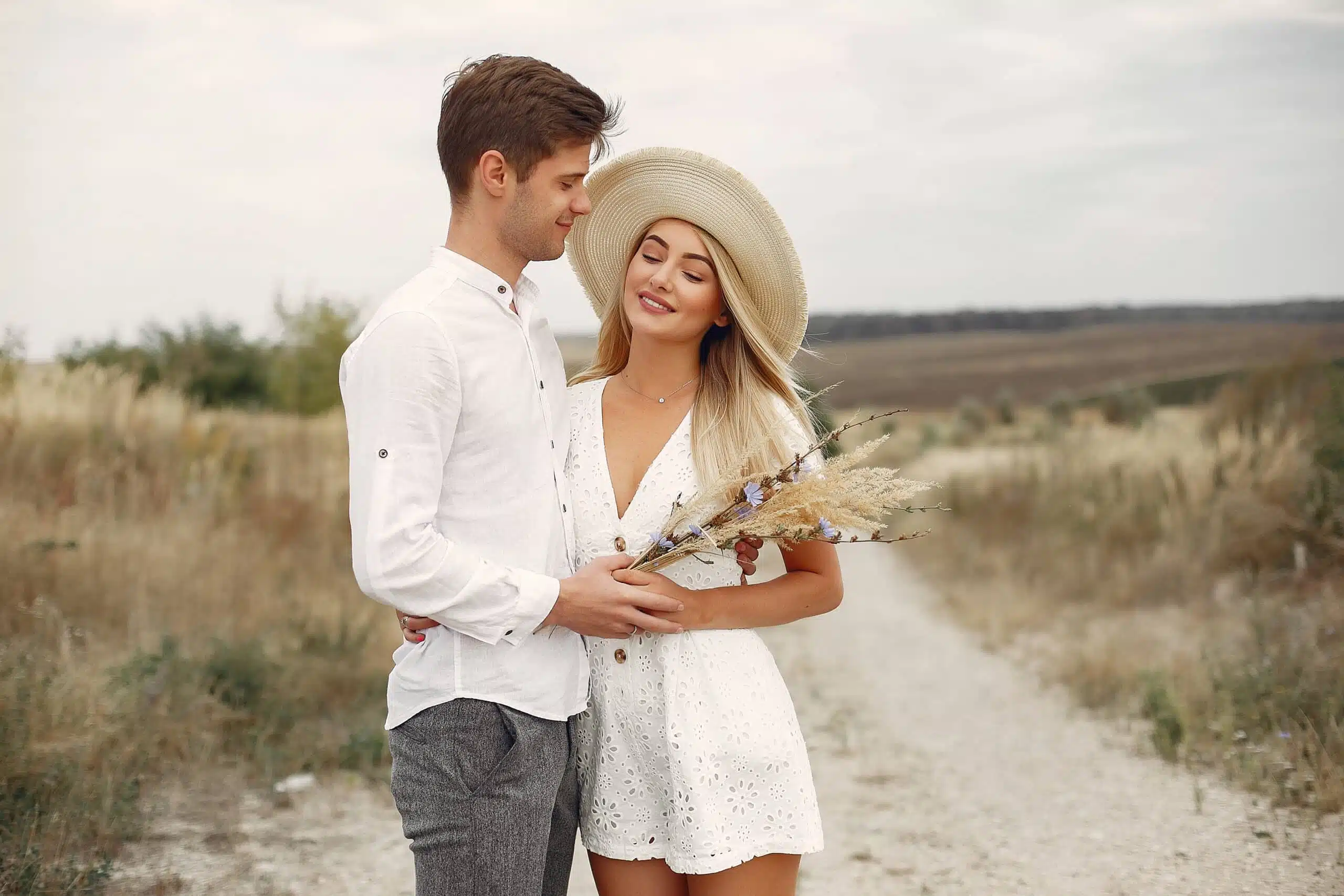
“To Elle” by Ralph Waldo Emerson
And Ellen, when the graybeard years
Have brought us to life’s evening hour,
And all the crowded Past appears
A tiny scene of sun and shower,
Then, if I read the page aright
Where Hope, the soothsayer, reads our lot,
Thyself shalt own the page was bright,
Well that we loved, woe had we not.
When Mirth is dumb and Flattery ’s fled,
And mute thy music’s dearest tone,
When all but Love itself is dead
And all but deathless Reason gone.
“Thine Eyes Still Shined” by Ralph Waldo Emerson
Thine eyes still shined for me, though far
I lonely roved the land or sea:
As I behold yon evening star,
Which yet beholds not me.
This morn I climbed the misty hill
And roamed the pastures through;
How danced thy form before my path
Amidst the deep-eyed dew!
When the redbird spread his sable wing,
And showed his side of flame;
When the rosebud ripened to the rose,
In both I read thy name.
“Cupido” by Ralph Waldo Emerson
The solid, solid universe
Is pervious to Love;
With bandaged eyes he never errs,
Around, below, above.
His blinding light
He flingeth white
On God’s and Satan’s brood,
And reconciles
By mystic wiles
The evil and the good.

“Eros” by Ralph Waldo Emerson
The sense of the world is short,—
Long and various the report,—
To love and be beloved;
Men and gods have not outlearned it;
And, how oft soe’er they ’ve turned it,
Not to be improved.
“The Amulet” by Ralph Waldo Emerson
Your picture smiles as first it smiled;
The ring you gave is still the same;
Your letter tells, O changing child!
No tidings since it came.
Give me an amulet
That keeps intelligence with you,—
Red when you love, and rosier red,
And when you love not, pale and blue.
Alas! that neither bonds nor vows
Can certify possession;
Torments me still the fear that love
Died in its last expression.
“To Eva” by Ralph Waldo Emerson
O fair and stately maid, whose eyes
Were kindled in the upper skies
At the same torch that lighted mine;
For so I must interpret still
Thy sweet dominion o’er my will,
A sympathy divine.
Ah! let me blameless gaze upon
Features that seem at heart my own;
Nor fear those watchful sentinels,
Who charm the more their glance forbids,
Chaste-glowing, underneath their lids,
With fire that draws while it repels.

“He Touched Me, so I Live to Know” by Emily Dickinson
He touched me, so I live to know
That such a day, permitted so,
I groped upon his breast.
It was a boundless place to me,
And silenced, as the awful sea
Puts minor streams to rest.
And now, I ’m different from before,
As if I breathed superior air,
Or brushed a royal gown;
My feet, too, that had wandered so,
My gypsy face transfigured now
To tenderer renown.
“It’s All I Have to Bring Today” by Emily Dickinson
It’s all I have to bring today—
This, and my heart beside—
This, and my heart, and all the fields—
And all the meadows wide—
Be sure you count—should I forget
Some one the sum could tell—
This, and my heart, and all the Bees
Which in the Clover dwell.
“Pagan Passion” by Luis G. Dato
I am sweetly perplexed by love sallies, releases,
By the countless retreats and the numberless captures,
By the petulant coldness and agreeable raptures,
By the whisper of phrases that hurts and then pleases,
I am drunk by the prodigal total of leases
From her body and spirit, her soul and her senses,
I revel in approaches and artless offenses,
In her challenging taunts and her tenderly teases.
Now will I disengage a red flower from her tresses,
And uplift her lithe form from a divan of roses,
For the zephyr of night too much passion opposes,
And in delicate folds now has rumpled her dresses.
On tomorrow’s new ventures the heart eager presses,
I repose now to ponder on life-soothing losses.

“That I Did Always Love” by Emily Dickinson
That I did always love,
I bring thee proof:
That till I loved
I did not love enough.
That I shall love alway,
I offer thee
That love is life,
And life hath immortality.
This, dost thou doubt, sweet?
Then have I
Nothing to show
But Calvary.
“The Constant Lover” by John Donne
I know as well as you she is not fair,
Nor hath she sparkling eyes, nor curling hair,
Nor can she boast of virtue, or of truth,
Nor anything about her, but her youth.
I know she cannot love, or, if she do,
Alas, ’twill be but for an hour or two;
For she a woman is; I know in vain
I spend my vows and tears, which down do rain
From my unhappy eyes, and to no end
I know I verses write and letters send;
For she hath vow’d my death shall never move her;
Yet for all this I cannot choose but love her.
Yet am I not so blind as some men be,
Who vow and swear they little Cupid see
In their fair mistress’ eyes, and say there dwell
Roses about her cheeks that do excell
Rubies and coral, as if love were built
In fading red and white, the body’s gilt;
As if they could not love, unless they tell
Where, how, and in what place their loves do dwell.
Vain heretics they are, for I love more
Than ever any did, that told wherefore.
Then do not trouble me, nor ask me why;
’Tis because she is she, and I am I.
“Love-Sonnet” by John Donne
O madam, you are of all women true,
Nay virtue’s self, that’s more, for only you
Are that which we imagine to be she;
You, and but you, make virtue here to be;
You, who by binding make us truly free,
Whose only bondman lives in liberty;
You, in which happy word all things are meant
Excepting wickedness and punishment.
You, that are you, which I love more than I,
In whom my soul can rest, yet I not die;
Nay lives, by being there, for that’s his place,
I, but a cabinet that keeps your face
Or model in my heart, for all that’s I
May in your picture live, in you must die.
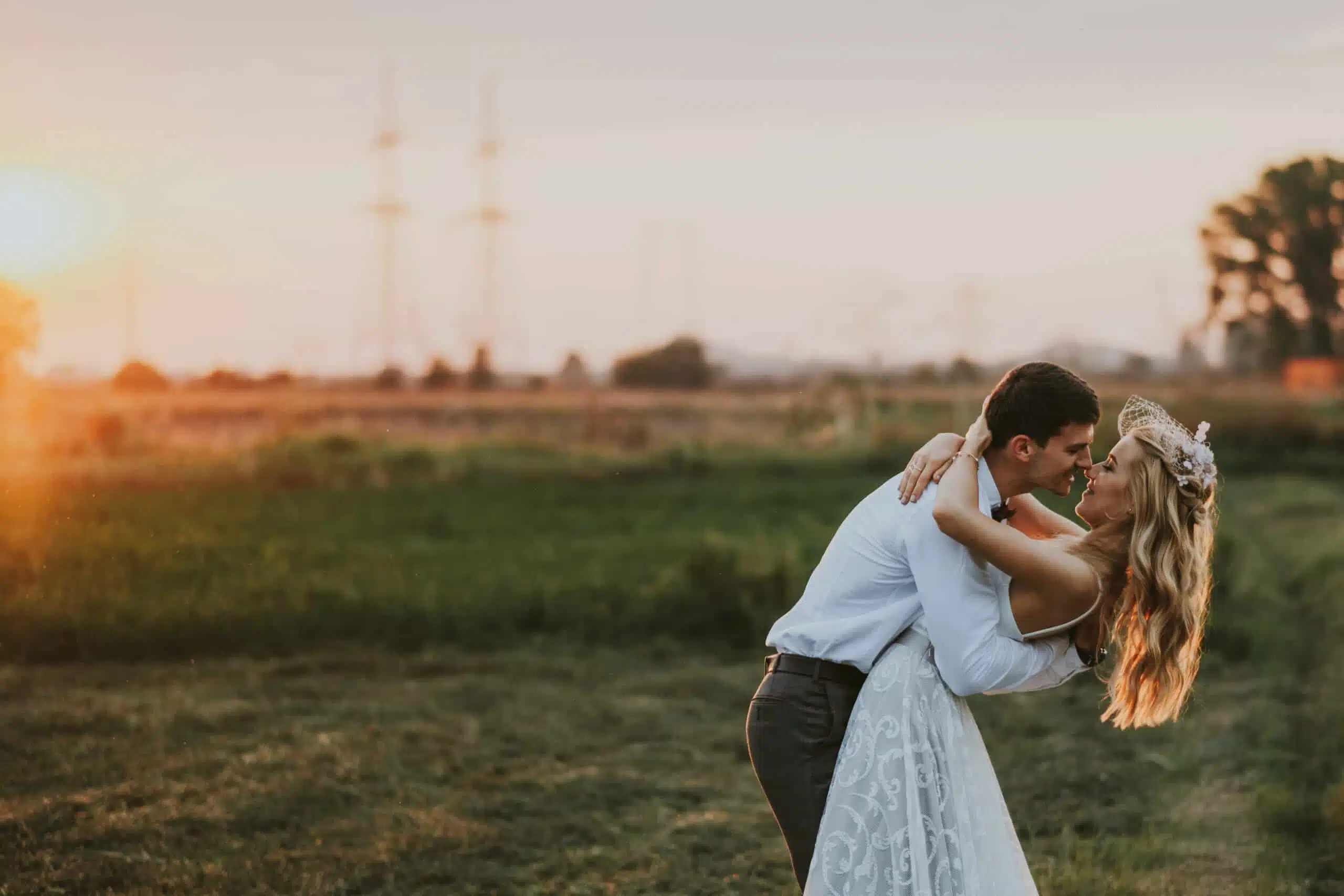
“My Wife’s a Winsome Wee Thing” by Robert Burns
She is a winsome wee thing,
She is a handsome wee thing,
She is a lo’esome wee thing,
This dear wee wife o’ mine.
I never saw a fairer,
I never lo’ed a dearer,
And neist my heart I’ll wear her,
For fear my jewel tine,
She is a winsome, &c.
The warld’s wrack we share o’t;
The warstle and the care o’t;
Wi’ her I’ll blythely bear it,
And think my lot divine.
She is a winsome, &c.
“Pretty Peg, My Dearie” by Robert Burns
As I gaed up by yon gate-end,
When day was waxin’ weary,
Wha did I meet come down the street,
But pretty Peg, my dearie!
Her air sae sweet, an’ shape complete,
Wi’ nae proportion wanting,
The Queen of Love did never move
Wi’ motion mair enchanting.
Wi’ linkèd hands we took the sands,
Adown yon winding river;
Oh, that sweet hour and shady bower,
Forget it shall I never!
“Valley Song” by Carl Sandburg
Your eyes and the valley are memories.
Your eyes fire and the valley a bowl.
It was here a moonrise crept over the timberline.
It was here we turned the coffee cups upside down.
And your eyes and the moon swept the valley.
I will see you again to-morrow.
I will see you again in a million years.
I will never know your dark eyes again.
These are three ghosts I keep.
These are three sumach-red dogs I run with.
All of it wraps and knots to a riddle:
I have the moon, the timberline, and you.
All three are gone—and I keep all three.

“A Poet to His Beloved” by W.B. Yeats
I bring you with reverent hands
The books of my numberless dreams;
White woman that passion has worn
As the tide wears the dove-gray sands,
And with heart more old than the horn
That is brimmed from the pale fire of time:
White woman with numberless dreams
I bring you my passionate rhyme.
“Lovely Young Jessie” by Robert Burns
True hearted was he, the sad swain o’ the Yarrow,
And fair are the maids on the banks of the Ayr;
But by the sweet side o’ the Nith’s winding river,
Are lovers as faithful, and maidens as fair:
To equal young Jessie seek Scotland all over;
To equal young Jessie you seek it in vain,
Grace, beauty, and elegance, fetter her lover,
And maidenly modesty fixes the chain.
O, fresh is the rose in the gay, dewy morning,
And sweet is the lily, at evening close;
But in the fair presence o’ lovely young Jessie,
Unseen is the lily, unheeded the rose.
Love sits in her smile, a wizard ensnaring;
Enthron’d in her een he delivers his law:
And still to her charms she alone is a stranger;
Her modest demeanour’s the jewel of a’.
“A Red, Red Rose” by Robert Burns
O my Luve’s like a red, red rose,
That’s newly sprung in June:
O my Luve’s like the melodie,
That’s sweetly play’d in tune.
As fair art thou, my bonie lass,
So deep in luve am I;
And I will luve thee still, my dear,
Till a’ the seas gang dry.
Till a’ the seas gang dry, my dear,
And the rocks melt wi’ the sun;
And I will luve thee still, my dear,
While the sands o’ life shall run.
And fare-thee-weel, my only Luve!
And fare-thee-weel, a while!
And I will come again, my Luve,
Tho’ ’twere ten thousand mile!

“This Heart That Flutters Near My Heart” by James Joyce
This heart that flutters near my heart
My hope and all my riches is,
Unhappy when we draw apart
And happy between kiss and kiss;
My hope and all my riches—yes!—
And all my happiness.
For there, as in some mossy nest
The wrens will divers treasures keep,
I laid those treasures I possessed
Ere that mine eyes had learned to weep.
Shall we not be as wise as they
Though love live but a day?
“The Beginning” by Rupert Brooke
Some day I shall rise and leave my friends
And seek you again through the world’s far ends,
You whom I found so fair
(Touch of your hands and smell of your hair!),
My only god in the days that were.
My eager feet shall find you again,
Though the sullen years and the mark of pain
Have changed you wholly; for I shall know
(How could I forget having loved you so?),
In the sad half-light of evening,
The face that was all my sunrising.
So then at the ends of the earth I’ll stand
And hold you fiercely be either hand,
And seeing your age and ashen hair
I’ll curse the thing that once you were,
Because it is changed and pale and old
(Lips that were scarlet, hair that was gold!),
And I loved you before you were old and wise,
When the flame of youth was strong in your eyes,
—And my heart is sick with memories.
“Song” by Sir John Suckling
Out upon it, I have lov’d
Three whole days together;
And am like to love three more,
If it prove fair weather.
Time shall moult away his wings
Ere he shall discover
In the whole wide world agen
Such a constant Lover.
But the spite on’t is, no praise
Is due at all to me:
Love with me had made no staies
Had it any been but she.
Had it any been but she
And that very Face,
There had been at least ere this
A dozen dozen in her place.

“Primeval My Love for the Woman I Love” by Walt Whitman
Primeval my love for the woman I love,
O bride! O wife! more resistless, more enduring than I can tell, the thought of you!
Then separate, as disembodied, the purest born,
The ethereal, the last athletic reality, my consolation,
I ascend—I float in the regions of your love, O man,
O sharer of my roving life.
“Thou Seemest Like a Flower” by Heinrich Heine
Thou seemest like a flower,
So fair and pure thou art;
I look on thee and sadness
Comes stealing through my heart.
And now I feel like resting
My hands upon thy hair,
Praying that God may keep thee
So lovely, pure and fair.
“Maiden Melancholy” by Rainer Maria Rilke
A young knight comes into my mind,
As in some old, old saying.
He came. Thus comes the storm to bind
You in its mantle, all entwined.
He went. Thus you are left behind
By church-bell’s blessing—to yourself confined
When you are praying—
You want to scream into the calm, but find
You do but gently weep, your face, inclined,
Into your cool scarf laying.
A young knight comes into my mind.
In arms I see him straying.
His smile, it was so mild and kind:
Like sheen of ivory enshrined,
Or like a homesick longing blind,
Like Christmas snow where dark ways wind,
Like turquoise stone that sea-pearls bind,
Like moonlight kind
On some dear volume playing.

“To My First Love” by Crowquill
This heart has beat to many a one,
To many, passing fair;
But oh! the Love which first it knew,
Still lingers fondly there;—
Though brighter eyes have beamed on me,—
And rosier lips I’ve prest,
The Love which first I felt for thee—
Yet dwells within my breast.
Tho’ softer skies are o’er me now,
And stars shine brighter here;
Tho’ Nature wears a sunny smile
And birds sing all the year,
Yet I would fain them all resign,
To dwell once more with thee,
For one sweet smile from lips like thine,
Were dearer far to me.
As memory clings around the spot,
Where first the breath we drew,
And all our kindlier thoughts are placed
On scenes that first we knew—
So earliest Love still twines around
The heart which beats to ours,
As Summer’s sweetest dew is found
Upon the earliest flowers.
Short Poems About Loving Someone You Shouldn’t

“A Drinking Song” by W.B. Yeats
Wine comes in at the mouth
And love comes in at the eye;
That’s all we shall know for truth
Before we grow old and die.
I lift the glass to my mouth,
I look at you, and I sigh.
“Silent Love” by Henry Wadsworth Longfellow
Who love would seek,
Let him love evermore
And seldom speak;
For in love’s domain
Silence must reign;
Or it brings the heart
Smart
And pain.
“To a Young Girl” by W.B. Yeats
My dear, my dear, I know
More than another
What makes your heart beat so;
Not even your own mother
Can know it as I know,
Who broke my heart for her
When the wild thought,
That she denies
And has forgot,
Set all her blood astir
And glittered in her eyes.

“Mistrust” by George William Russell
You look at me with wan, bright eyes
When in the deeper world I stray:
You fear some hidden ambush lies
In wait to call me, “Come away.”
What if I see behind the veil
Your starry self beseeching me,
Or at its stern command grow pale,
“Let her be free, let her be free”?
“O You Whom I Often and Silently Come” by Walt Whitman
O you whom I often and silently come where you are, that I may be with you;
As I walk by your side, or sit near, or remain in the same room with you,
Little you know the subtle electric fire that for your sake is playing within me.
“A Farewell” by George William Russell
Only in my deep heart I love you, sweetest heart.
Many another vesture hath the soul, I pray
Call me not forth from this. If from the light I part
Only with clay I cling unto the clay.
And ah! my bright companion, you and I must go
Our ways, unfolding lonely glories, not out own,
Nor from each other gathered, but an inward glow
Breathed by the Lone One on the seeker lone.
If for the heart’s own sake we break the heart, we may
When the last ruby drop dissolves in diamond light
Meet in a deeper vesture in another day.
Until that dawn, dear heart, good-night, good-night.

“Hanrahan Reproves the Curlew” by W.B. Yeats
O, Curlew, cry no more in the air,
Or only to the waters in the West;
Because your crying brings to my mind
Passion-dimmed eyes and long heavy hair
That was shaken out over my breast:
There is enough evil in the crying of wind.
“Her Initials” by Thomas Hardy
Upon a poet’s page I wrote
Of old two letters of her name;
Part seemed she of the effulgent thought
Whence that high singer’s rapture came.
When now I turn the leaf the same
Immortal light illumes the lay
But from the letters of her name
The radiance has died away.
“Whom Does She Love?” by Arthur William Ryder
With one she gossips full of art;
Her glances with a second flirt;
She holds another in her heart:
Whom does she love enough to hurt?

“Break of Day” by John Donne
Stay, O sweet, and do not rise;
The light that shines comes from thine eyes;
The day breaks not, it is my heart,
Because that you and I must part.
Stay, or else my joys will die
And perish in their infancy.
“The Lie” by John Donne
Sir, say not that you love, unless you do,
For often lying will dishonour you.
Lady, I love, and therefore love to do,
And will not lie, unless I lie with you.
You say I lie, I say you lie, judge whether;
If we then both do lie, let’s lie together.
“Heart, We Will Forget Him!” by Emily Dickinson
Heart, we will forget him!
You and I, to-night!
You may forget the warmth he gave,
I will forget the light.
When you have done, pray tell me,
That I my thoughts may dim;
Haste! lest while you’re lagging,
I may remember him!

“Love in the Guise of Friendship” by Robert Burns
Your friendship much can make me blest,
O why that bliss destroy!
Why urge the only, one request
You know I will deny!
Your thought, if Love must harbour there,
Conceal it in that thought;
Nor cause me from my bosom tear
The very friend I sought.
“Proud of My Broken Heart Since Thou Didst Break It” by Emily Dickinson
Proud of my broken heart since thou didst break it,
Proud of the pain I did not feel till thee,
Proud of my night since thou with moons dost slake it,
Not to partake thy passion, my humility.
“I Hide Myself Within My Flower” by Emily Dickinson
I hide myself within my flower,
That wearing on your breast,
You, unsuspecting, wear me too—
And angels know the rest.
I hide myself within my flower,
That, fading from your vase,
You, unsuspecting, feel for me
Almost a loneliness.

“To Olivia” by Francis Thompson
I fear to love thee, Sweet, because
Love’s the ambassador of loss;
White flake of childhood, clinging so
To my soiled raiment, thy shy snow
At tenderest touch will shrink and go.
Love me not, delightful child.
My heart, by many snares beguiled,
Has grown timorous and wild.
It would fear thee not at all,
Wert thou not so harmless-small.
Because thy arrows, not yet dire,
Are still unbarbed with destined fire,
I fear thee more than hadst thou stood
Full-panoplied in womanhood.
“For Daughters of Magdalen” by Countee Cullen
Ours is the ancient story:
Delicate flowers of sin,
Lilies, arrayed in glory,
That would not toil nor spin.
“Libido” by Rupert Brooke
How should I know? The enormous wheels of will
Drove me cold-eyed on tired and sleepless feet.
Night was void arms and you a phantom still,
And day your far light swaying down the street.
As never fool for love, I starved for you;
My throat was dry and my eyes hot to see.
Your mouth so lying was most heaven in view,
And your remembered smell most agony.
Love wakens love! I felt your hot wrist shiver
And suddenly the mad victory I planned
Flashed real, in your burning bending head.…
My conqueror’s blood was cool as a deep river
In shadow; and my heart beneath your hand
Quieter than a dead man on a bed.
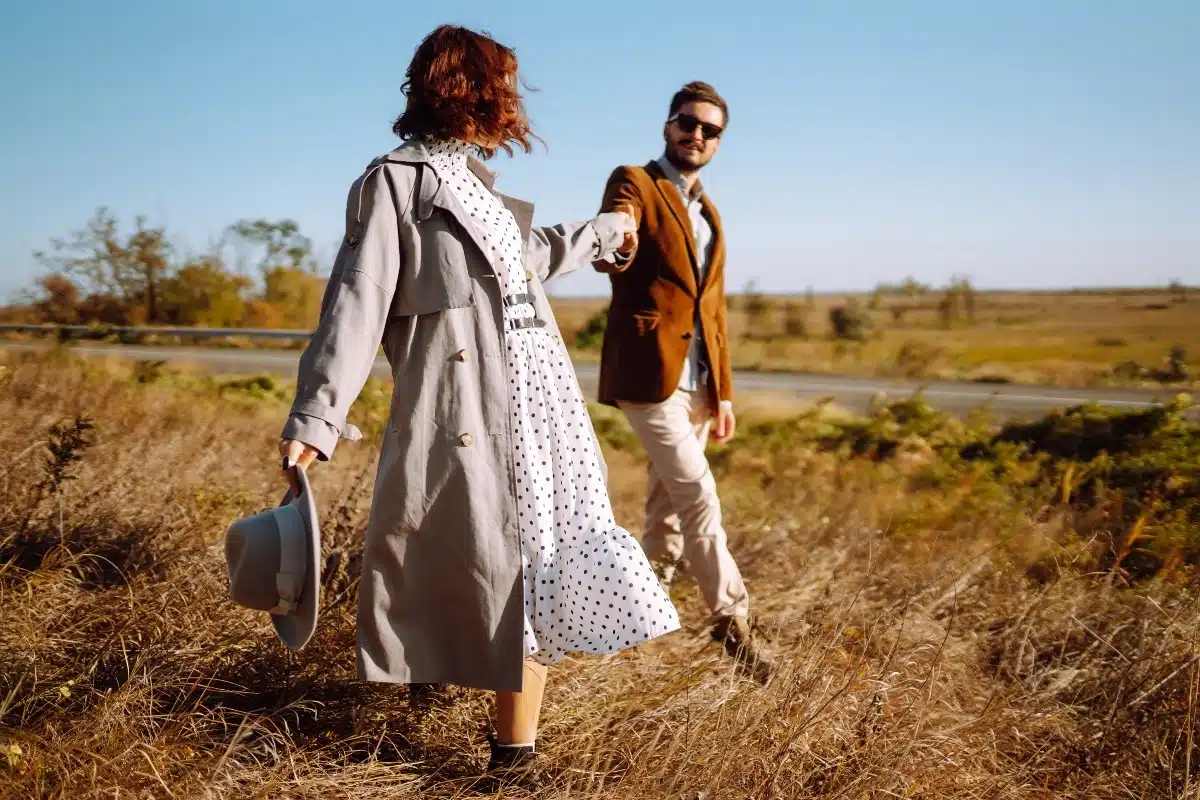
“Enthralled” by Alfred Bryan
Teach me to sin—
In love’s forbidden ways,
For you can make all passion pure;
The magic lure of your sweet eyes
Each shape of sin makes virtue praise.
Teach me to sin—
Enslave me to your wanton charms,
Crush me in your velvet arms
And make me, make me love you.
Make me fire your blood with new desire,
And make me kiss you—lip and limb,
Till senses reel and pulses swim.
Aye! even if you hate me,
Teach me to sin.
“Sensuality” by Florence E. von Wien
You suck in my beauty, like a ravished beast
The trickling blood of fresh, warm meat.
You breathe in the fragrance of my leprous-white skin,
Till, sated with the fullness of your realization,
You loll in my arms—nauseated with over-feasting.
“Adultery” by Richard Le Gallienne
Ad Absurdum
I saw a little burnished fly
Within my Mistress’ bodice lie,
Sipping lovely stolen sweets
From her ample rosy teats.
‘Small adulterer,’ said I,
‘Dost thou know where thou dost lie?
‘’Tis my lady’s bosom fine,
‘And thou dost sip what is not thine.’

“Midsummer” by Lee Timberlake
I have need of love,
I am parched,
And I am barren.
I await the thunder of your demand,
While I crave the lightning shock
Of your embrace
To plough my hardened breast
To flower.
I must have the rainfall
Of your kisses
Increase to torrents
To saturate my sterility;
So the hot sun
Of your smile
Will burst my bud-bonds,
For I must become fecund
That I may sing,
I have need of you!
“Infatuation” by Lee Timberlake
In bat black night,
When stars slide low
And look;
Your wet red mouth,
A suckling rose,
Seeks mine
And draws,
Retreats,
Provokes,
Then melts my soul
And moulds it yours.
“Selfishness” by Alfred Bryan
She whom I love must be above reproach;
Must veil her face to all admiring eyes;
Must droop her lids to all admiring lovers;
Must not betray the beauty of her limbs
To him and him and him and him.
She must be all our mothers must have been,
And all we think our sisters are
From all the crowd apart, too pure to mar.
But when alone with me—then she may be:
She may be lewd as Messaline was lewd.
She may be nude, and still remain a prude.
’Tis nothing wrong that she may do with me;
She’s still a woman, chaste, with modesty.
But let her be of these with other men,
God pity her, for she is,—well, what they?
A harlot, scarlet, crimsoned courtesan per se
She’s worse than that if she’s not true to me.

“Come and Lie With Me” by Elsie A. Gidlow
Come and lie with me and love me,
Bitterness;
Touch me with your hands a little,
Kiss me, as you lean above me,
With your cold, sadistic kisses;
Wind your hair close, close around me,—
Pain might dissipate this blankness;
Hurt me even, even wound me;
I have need of love that stings.
Come and lie with me and love me,
Bitterness,
So that I can laugh at things.
“Ivory and Rose” by Louis Untermeyer
Here in this moonlit room, I watch you slip
One shoulder from your dress and turn to me;
A polished statue, flushing to the tip
Of marble fingers gradually.
And, like a ripe moon out of flimsy clouds,
Blossoms the shining fulness of your breast.
These curves conceal, this dear perfection shrouds
A soft, miraculous nest.
Your ivory body pulses as the white
Flesh catches flame and rosy tremblings move
Over this sanctuary of delight,
The last asylum of our love.
“The Beauty Lover” by Claire Bu Zard
The round, pink, laughing girl bathes,
And the thin, grey, silent girl watches.
And afterwards,
When the bather dries herself,
And puts powder under her arms,
And lies down, like a sleepy flower,—
The grey girl catches her around the hips, violently,
And kisses her:
Surprised, the pink girl draws away;
And the grey girl—
(Poor little restless lover of beauty)—
Apologizes
And is ashamed.
Poems About Loving Someone Far Away
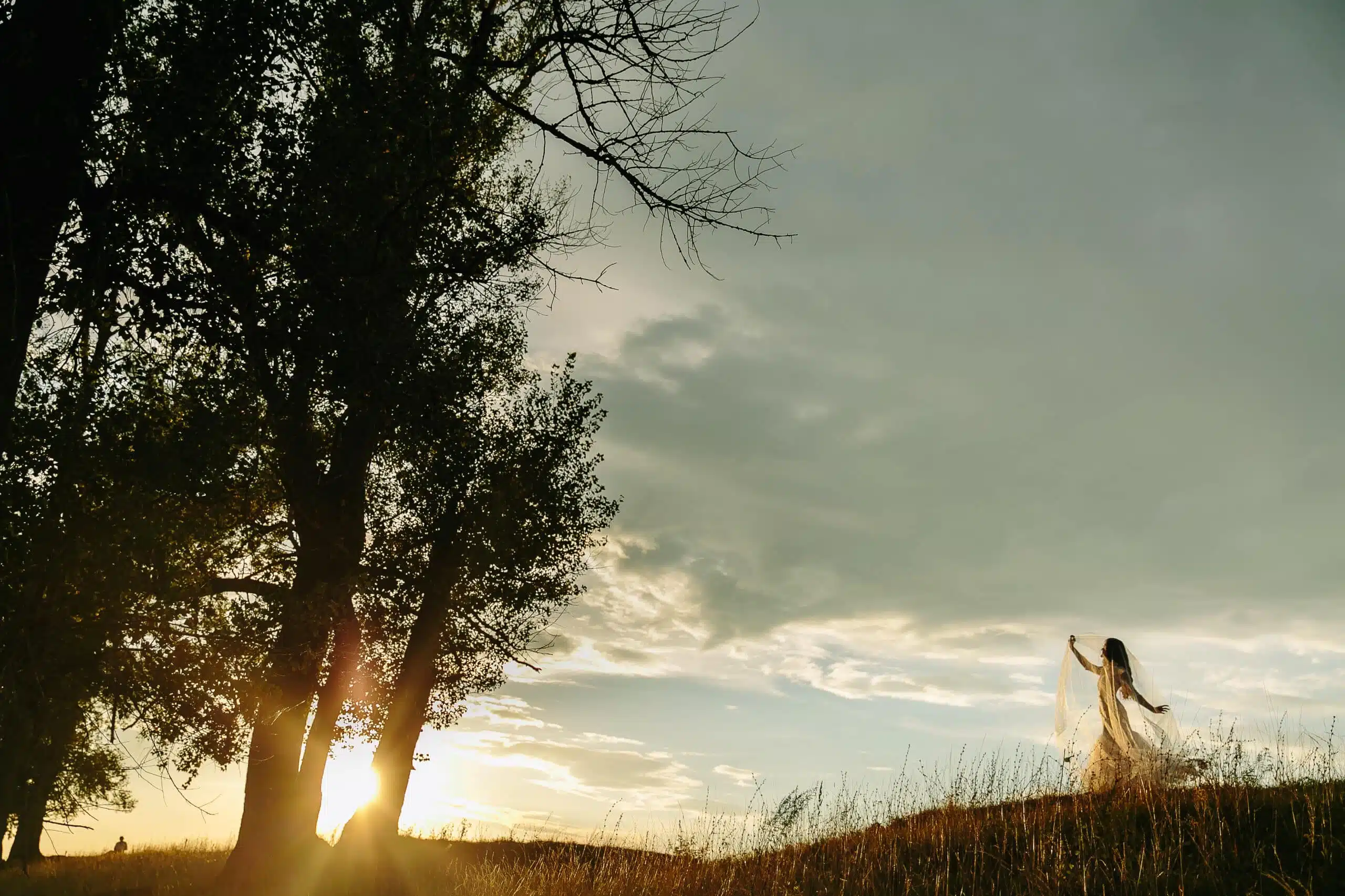
“Talk of Him That’s Far Awa” by Robert Burns
Musing on the roaring ocean,
Which divides my love and me;
Wearying heav’n in warm devotion,
For his weal where’er he be.
Hope and Fear’s alternate billow
Yielding late to Nature’s law,
Whispering spirits round my pillow,
Talk of him that’s far awa.
Ye whom sorrow never wounded,
Ye who never shed a tear,
Care-untroubled, joy-surrounded,
Gaudy day to you is dear.
Gentle night, do thou befriend me,
Downy sleep, the curtain draw;
Spirits kind, again attend me,
Talk of him that’s far awa!
“Farewell to Love” by Samuel Taylor Coleridge
Farewell, sweet Love! yet blame you not my truth:
More fondly ne’er did mother eye her child
Than I your form. Yours were my hopes of youth,
And as you shaped my thoughts, I sighed or smiled.
While most were wooing wealth, or gayly swerving
To pleasure’s secret haunts, and some apart
Stood strong in pride, self-conscious of deserving,
To you I gave my whole, weak, wishing heart.
And when I met the maid that realized
Your fair creations, and had won her kindness,
Say but for her if aught in earth I prized!
Your dream alone I dreamt, and caught your blindness.
O grief!—but farewell, Love! I will go play me
With thoughts that please me less, and less betray me.
“Without Her” by Dante Gabriel Rossetti
What of her glass without her? The blank grey
There where the pool is blind of the moon’s face.
Her dress without her? The tossed empty space
Of cloud-rack whence the moon has passed away.
Her paths without her? Day’s appointed sway
Usurped by desolate night. Her pillowed place
Without her? Tears, ah me! for love’s good grace,
And cold forgetfulness of night or day.
What of the heart without her? Nay, poor heart,
Of thee what word remains ere speech be still?
A wayfarer by barren ways and chill,
Steep ways and weary, without her thou art,
Where the long cloud, the long wood’s counterpart,
Sheds double darkness up the labouring hill.

“Out Over the Forth” by Robert Burns
Out over the Forth, I look to the North;
But what is the north and its Highlands to me?
The south nor the east gie ease to my breast,
The far foreign land, or the wide rolling sea.
But I look to the west when I gae to rest,
That happy my dreams and my slumbers may be;
For far in the west lives he I loe best,
The man that is dear to my babie and me.
“How Long and Dreary Is the Night” by Robert Burns
How long and dreary is the night,
When I am frae my dearie!
I sleepless lie frae e’en to morn,
Tho’ I were ne’er so weary:
I sleepless lie frae e’en to morn,
Tho’ I were ne’er sae weary!
When I think on the happy days
I spent wi’ you my dearie:
And now what lands between us lie,
How can I be but eerie!
And now what lands between us lie,
How can I be but eerie!
How slow ye move, ye heavy hours,
As ye were wae and weary!
It was na sae ye glinted by,
When I was wi’ my dearie!
It was na sae ye glinted by,
When I was wi’ my dearie!
“The Busy Heart” by Rupert Brooke
Now that we’ve done our best and worst, and parted,
I would fill my mind with thoughts that will not rend.
(O heart, I do not dare go empty-hearted)
I’ll think of Love in books, Love without end;
Women with child, content; and old men sleeping;
And wet strong ploughlands, scarred for certain grain;
And babes that weep, and so forget their weeping;
And the young heavens, forgetful after rain;
And evening hush, broken by homing wings;
And Song’s nobility, and Wisdom holy,
That live, we dead. I would think of a thousand things,
Lovely and durable, and taste them slowly,
One after one, like tasting a sweet food.
I have need to busy my heart with quietude.
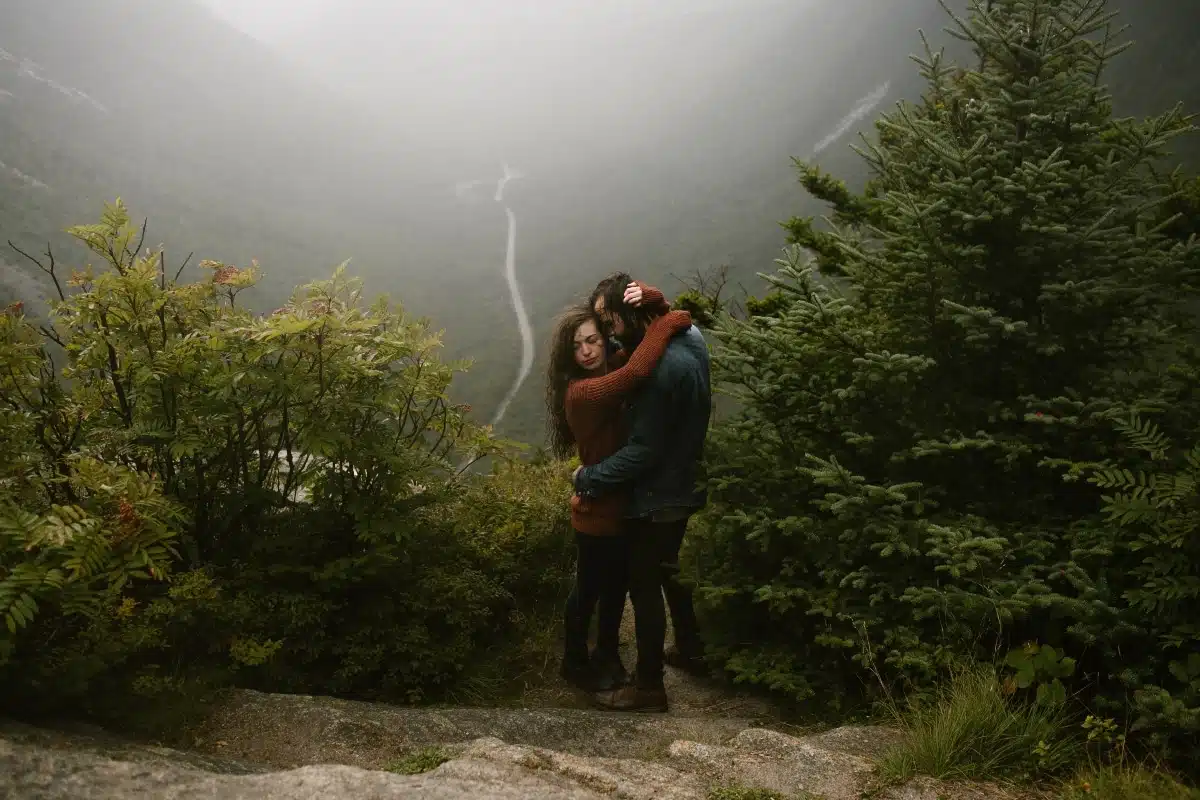
“A Channel Passage” by Rupert Brooke
The damned ship lurched and slithered. Quiet and quick
My cold gorge rose; the long sea rolled; I knew
I must think hard of something, or be sick;
And could think hard of only one thing—you!
You, you alone could hold my fancy ever!
And with you memories come, sharp pain, and dole.
Now there’s a choice—heartache or tortured liver!
A sea-sick body, or a you-sick soul!
Do I forget you? Retchings twist and tie me,
Old meat, good meals, brown gobbets, up I throw.
Do I remember? Acrid return and slimy,
The sobs and slobber of a last years woe.
And still the sick ship rolls. ’Tis hard, I tell ye,
To choose ’twixt love and nausea, heart and belly.
“Longing” by Matthew Arnold
Come to me in my dreams, and then
By day I shall be well again.
For then the night will more than pay
The hopeless longing of the day.
Come, as thou cam’st a thousand times,
A messenger from radiant climes,
And smile on thy new world; and be
As kind to others as to me.
Or, as thou never cam’st in sooth,
Come now, and let me dream it truth.
And part my hair, and kiss my brow,
And say—My love! why sufferest thou?
Come to me in my dreams, and then
By day I shall be well again.
For then the night will more than pay
The hopeless longing of the day.
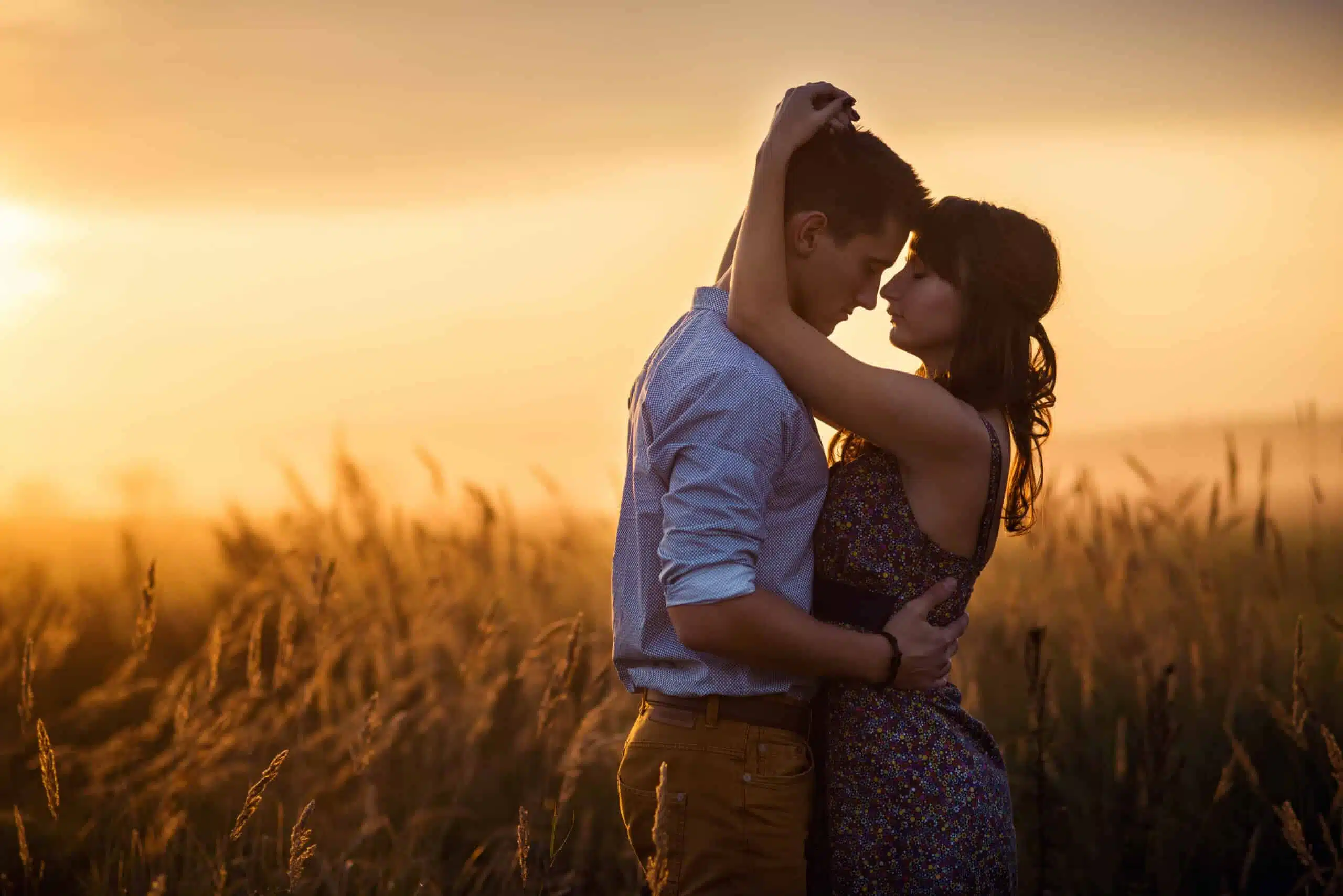
“Highland Harry Back Again” by Robert Burns
My Harry was a gallant gay,
Fu’ stately strade he on the plain;
But now he’s banish’d far away,
I’ll never see him back again.
O for him back again!
O for him back again!
I wad gie a’ Knockhaspie’s land
For Highland Harry back again.
When a’ the lave gae to their bed,
I wander dowie up the glen;
I set me down and greet my fill,
And aye I wish him back again.
O for him, &c.
O were some villains hangit high,
And ilka body had their ain!
Then I might see the joyfu’ sight,
My Highland Harry back again.
O for him, &c.
“Divided” by Julia Boynton
I cannot reach thee, we are far, so far
Apart who are so dear! Love, be it so;
Else we might press so close we should not grow.
One doth deny even this so sweet a bar
For fear our souls’ true shape should suffer mar.
Ah, surface-sundered, yet do we not know
A hidden union in the deeps below?
An intertwining where the strong roots are?
Wise husbandmen plant trees, Sweetheart,—a space
Between the trees; but after, soon or late,
High in the sunny air their spreading boughs
Reach forth and meet. In some celestial place,
When thou and I are tall and fair and straight,
We shall clasp hands again,—if God allows.
